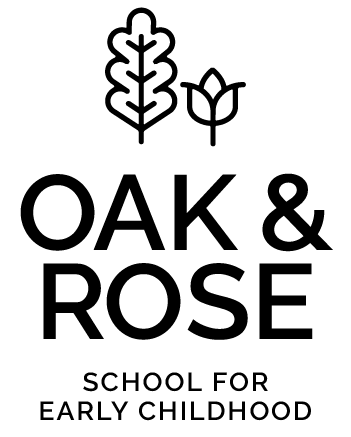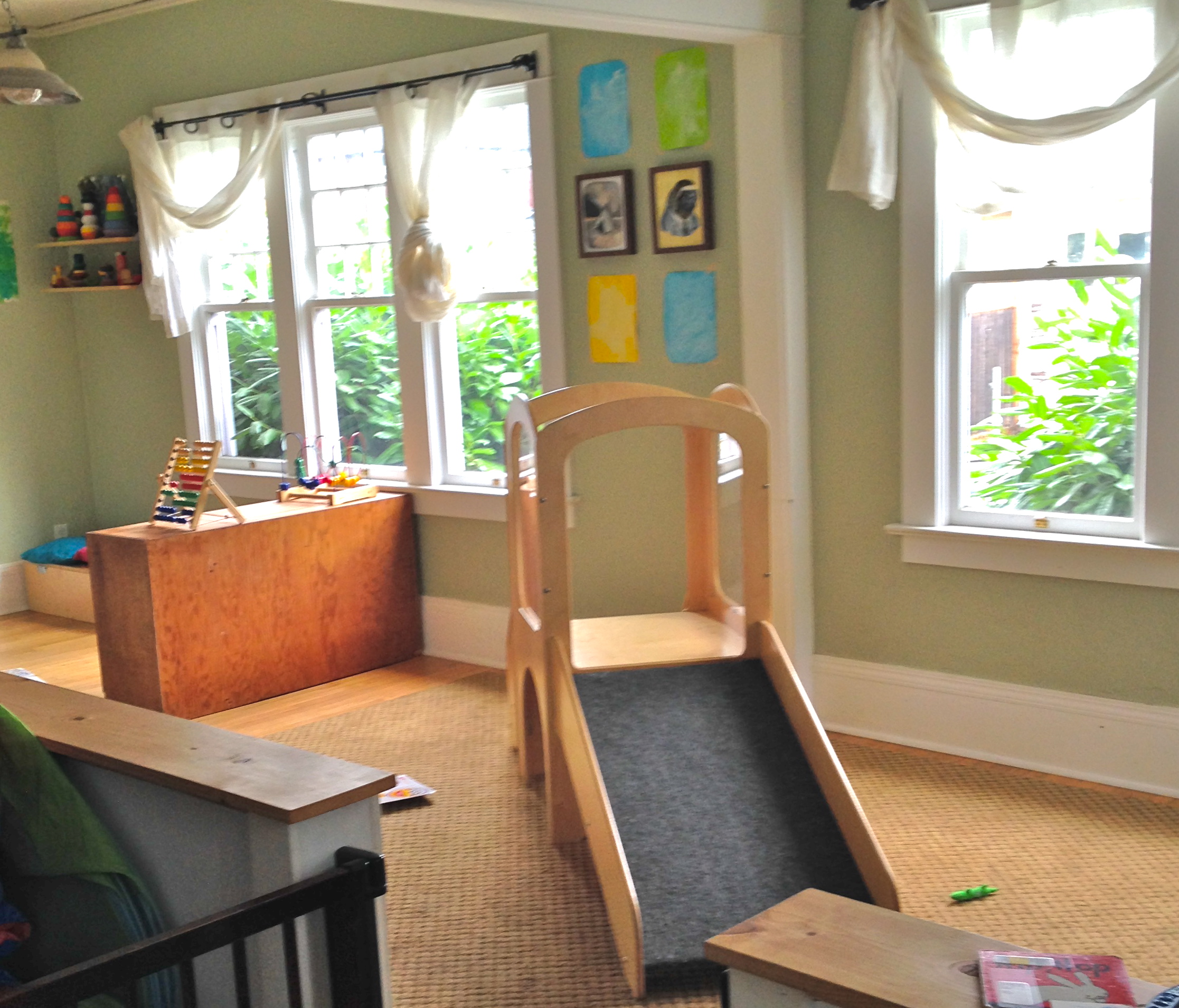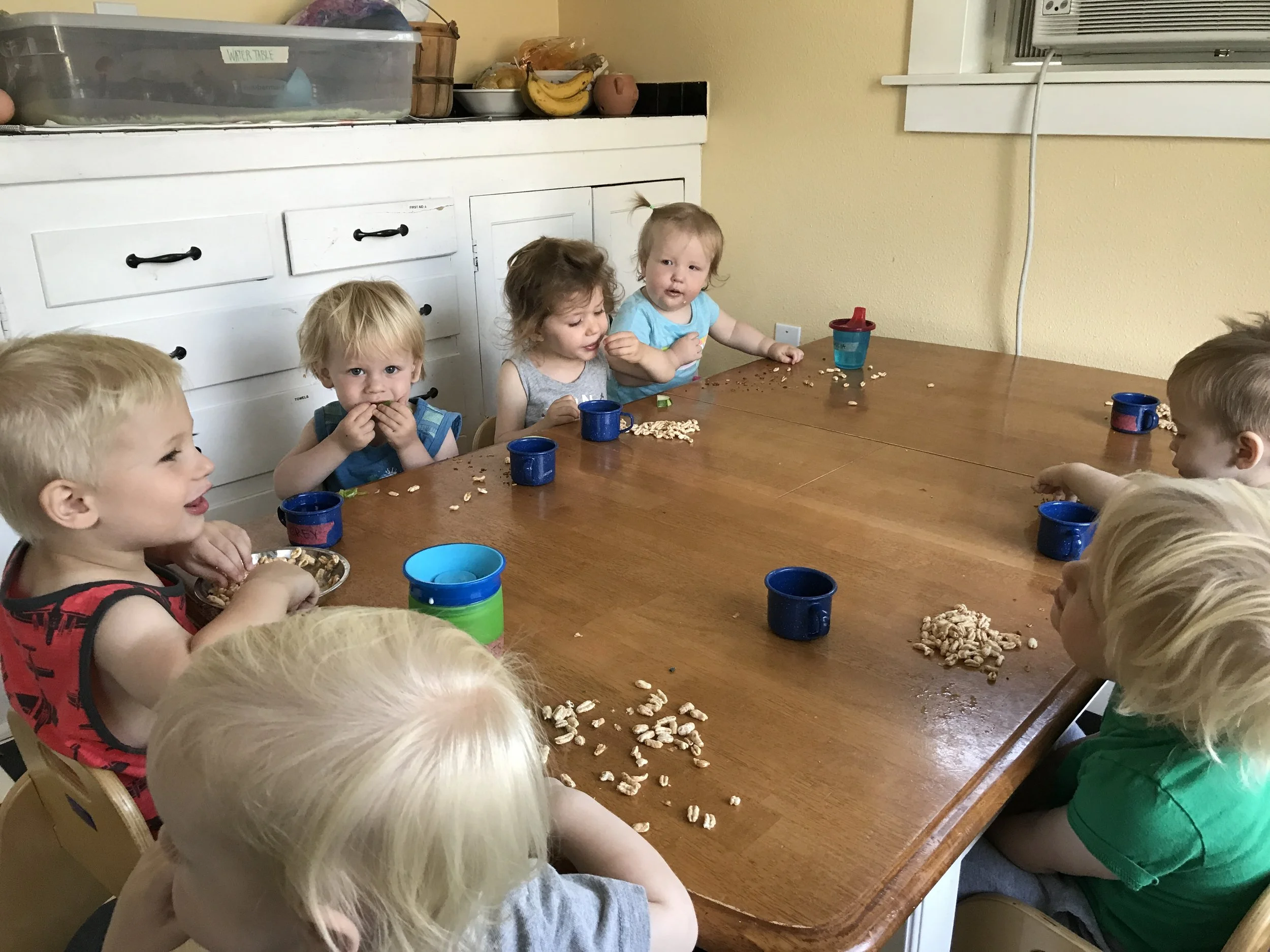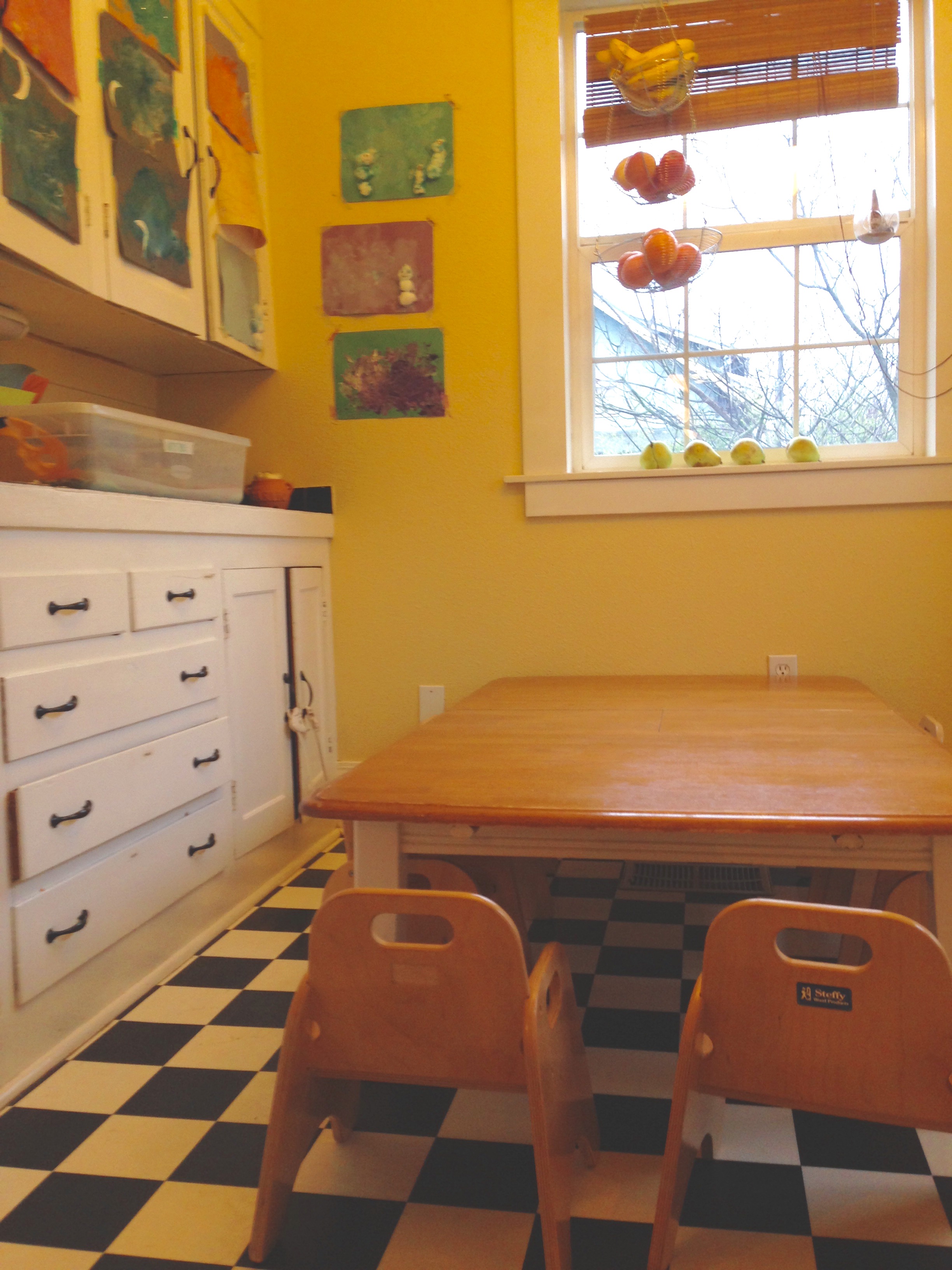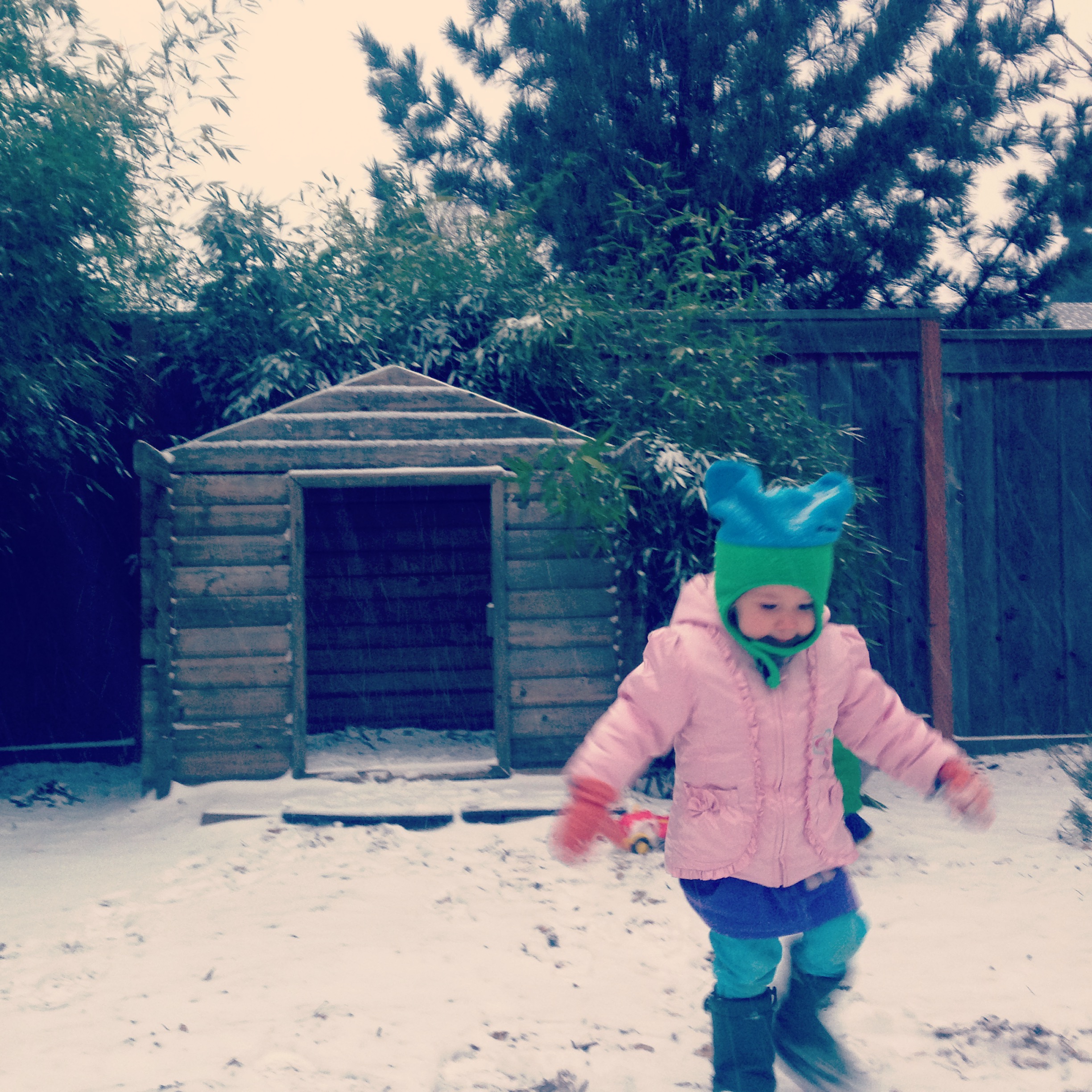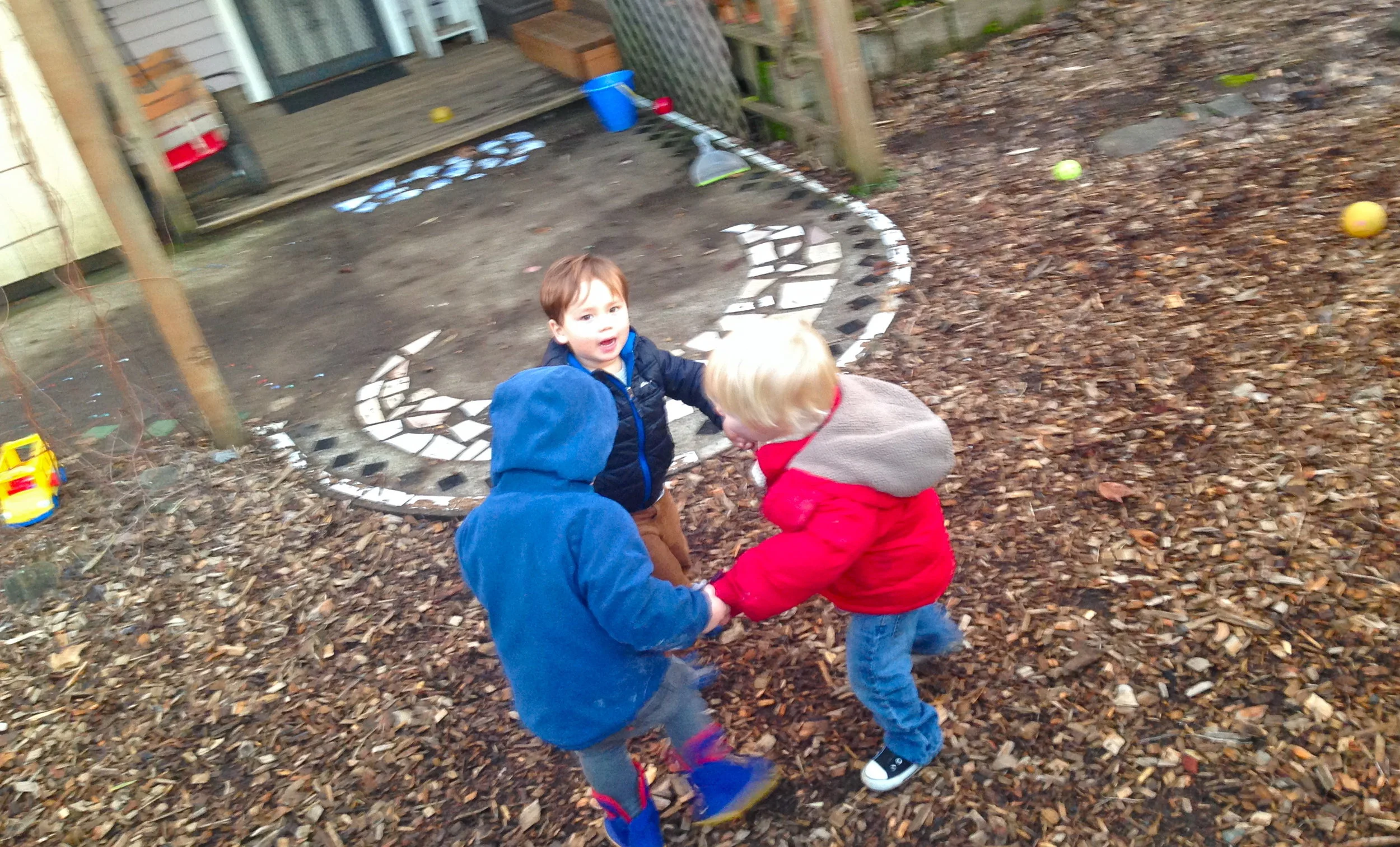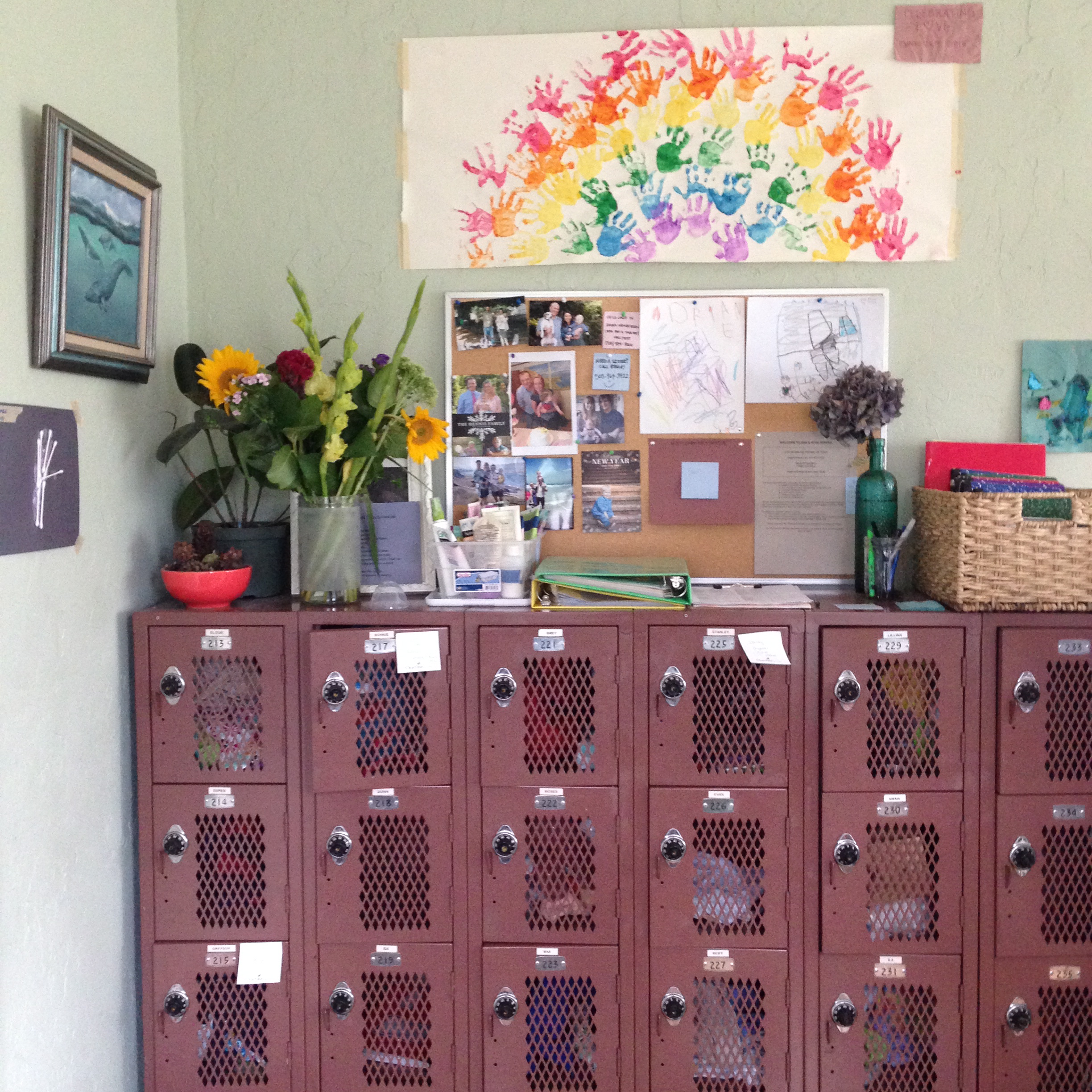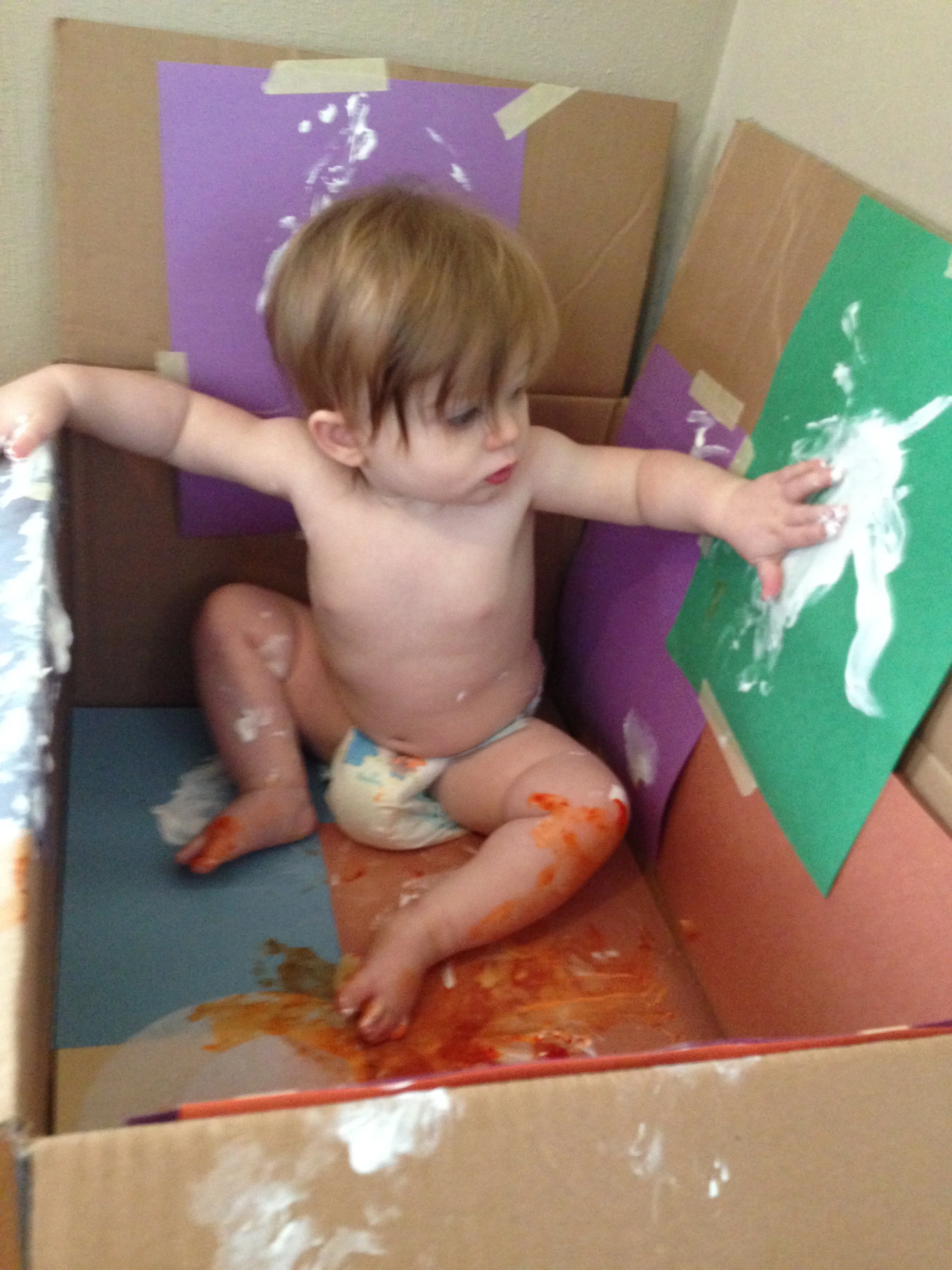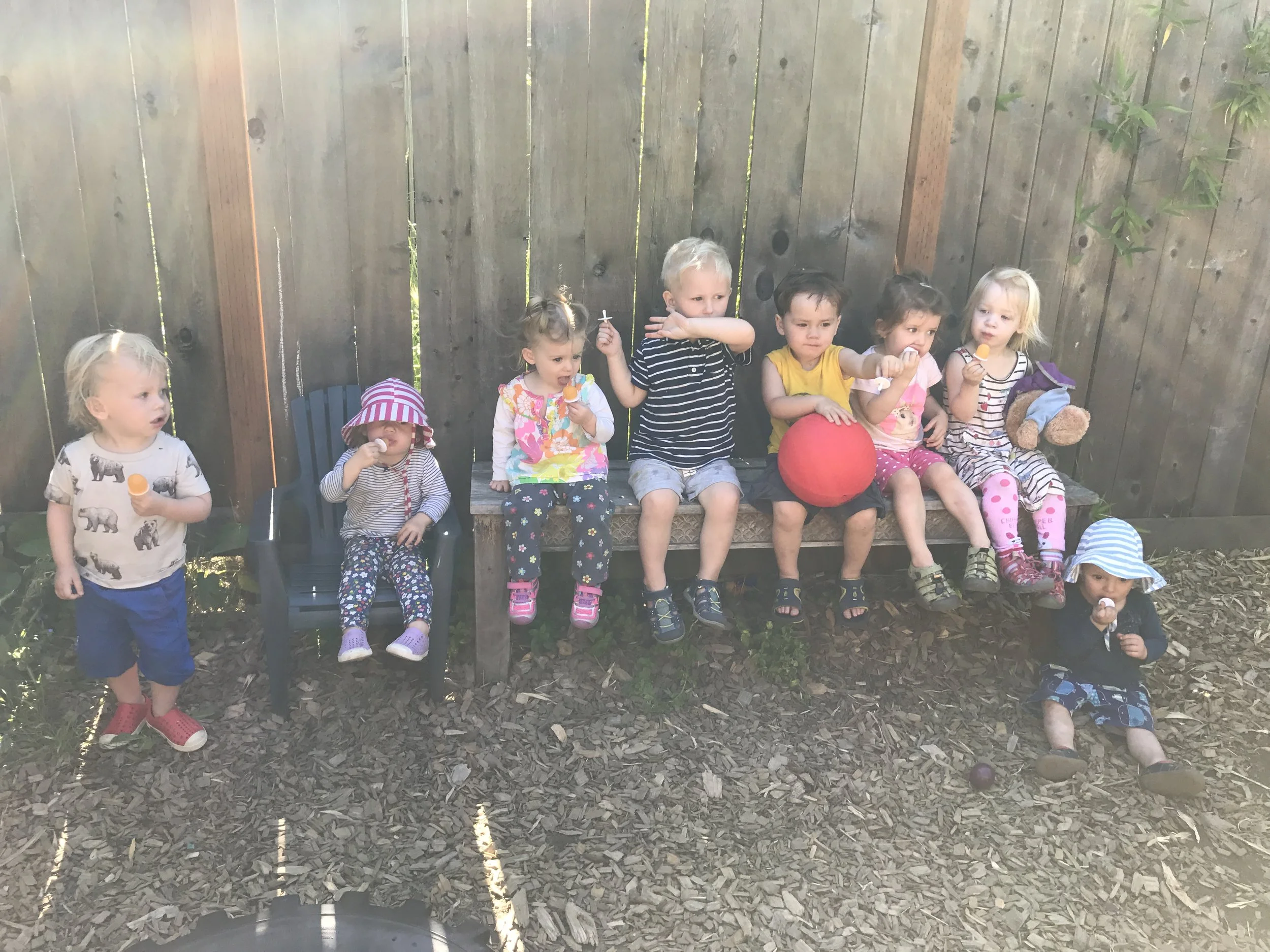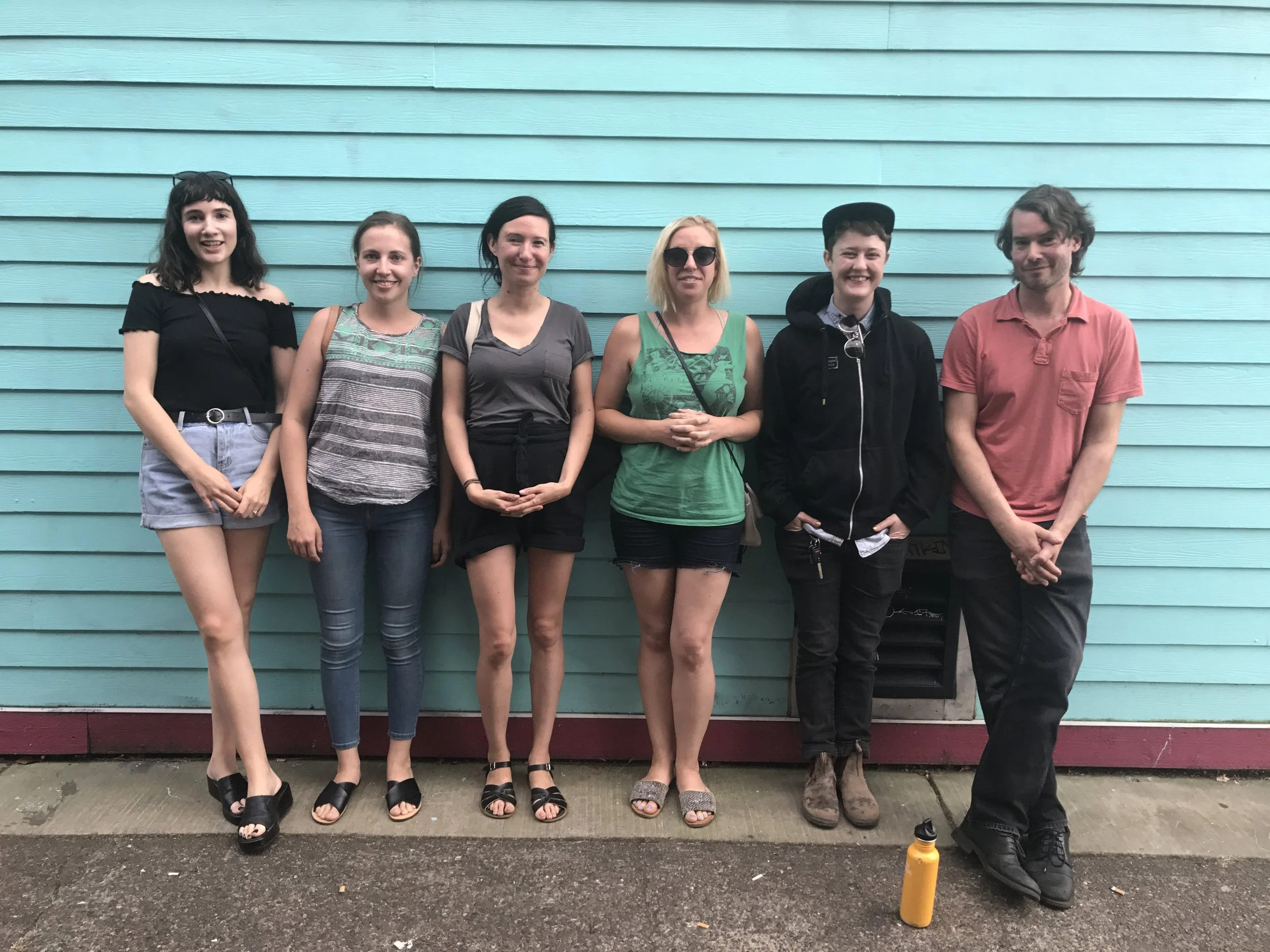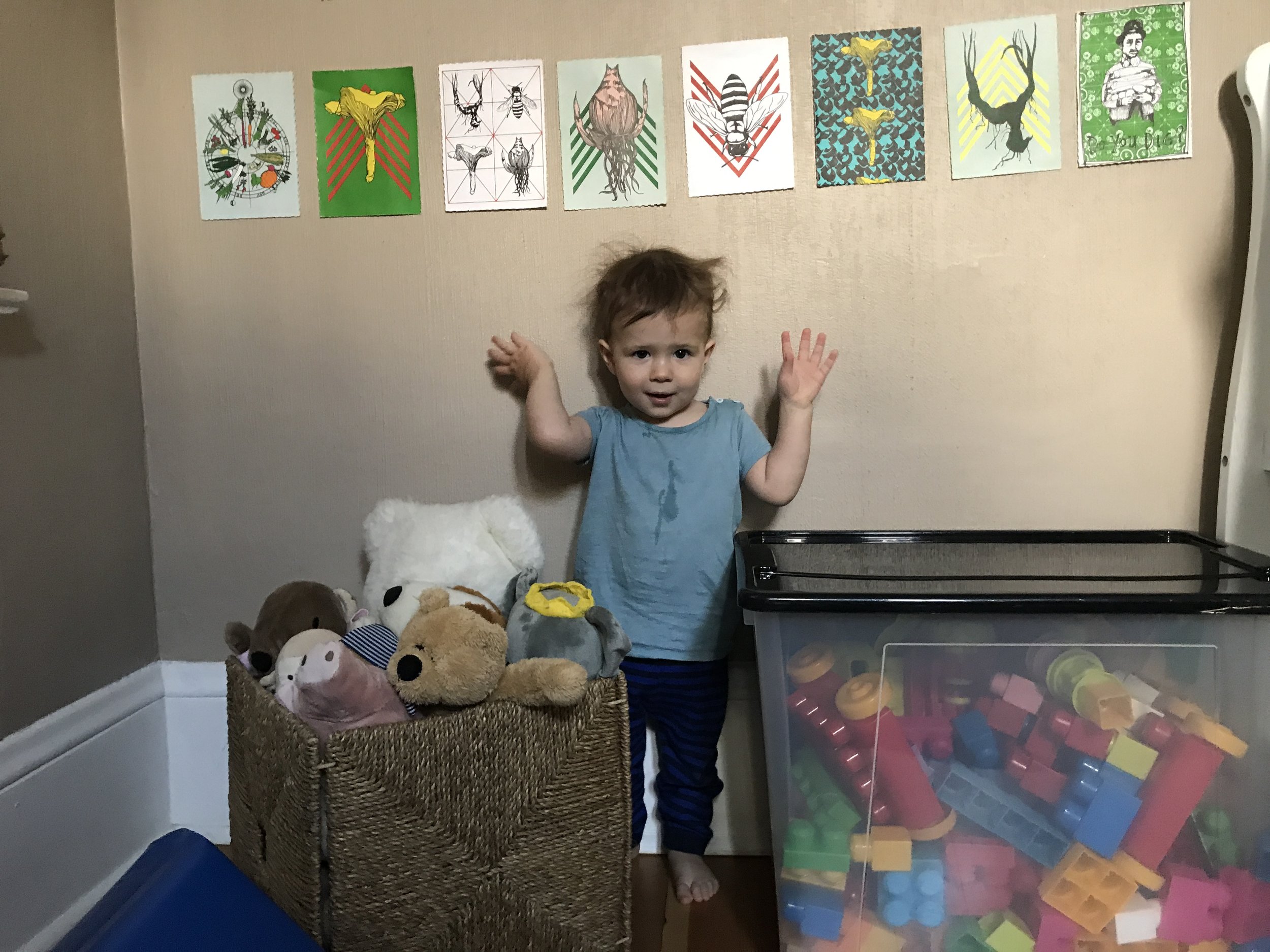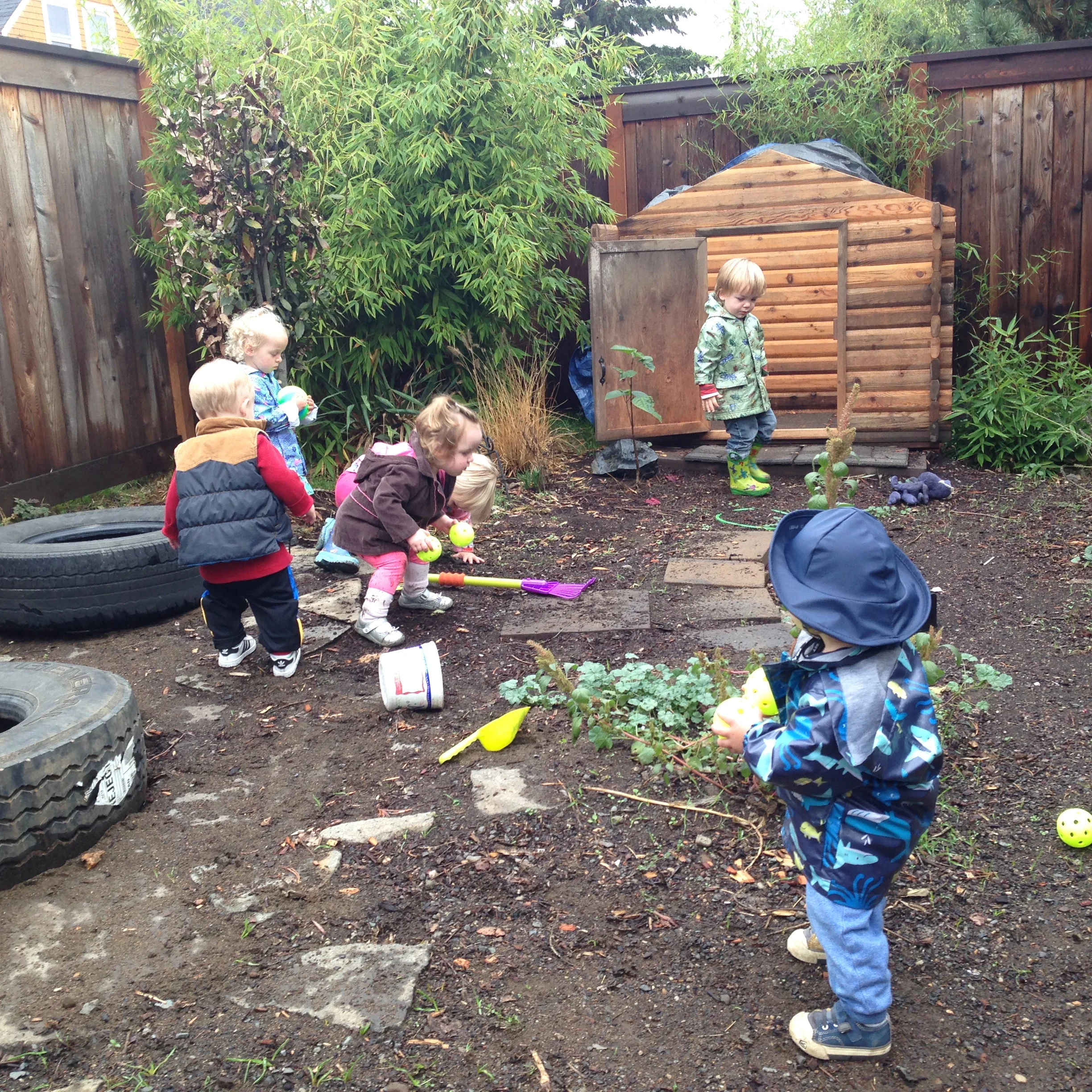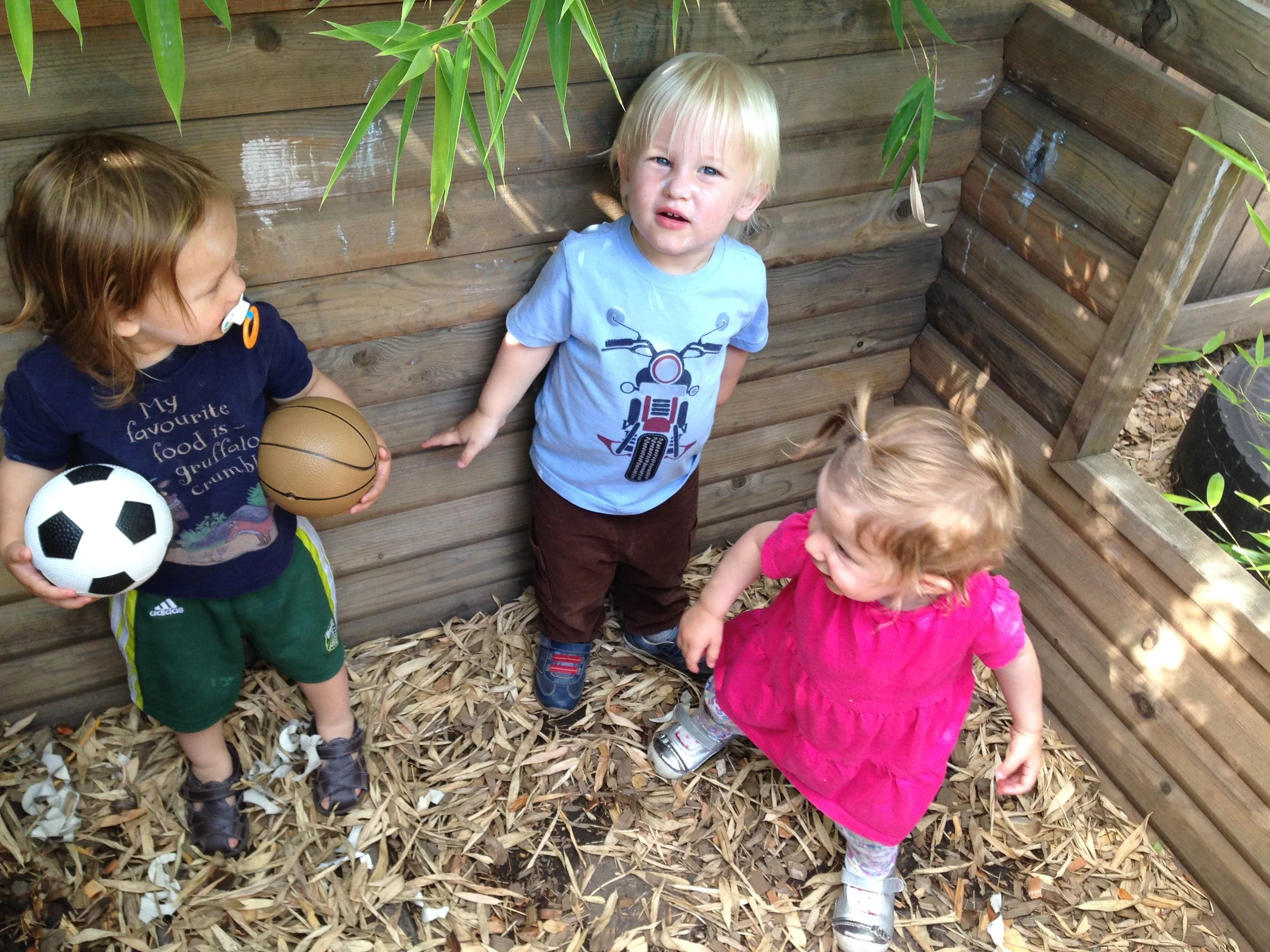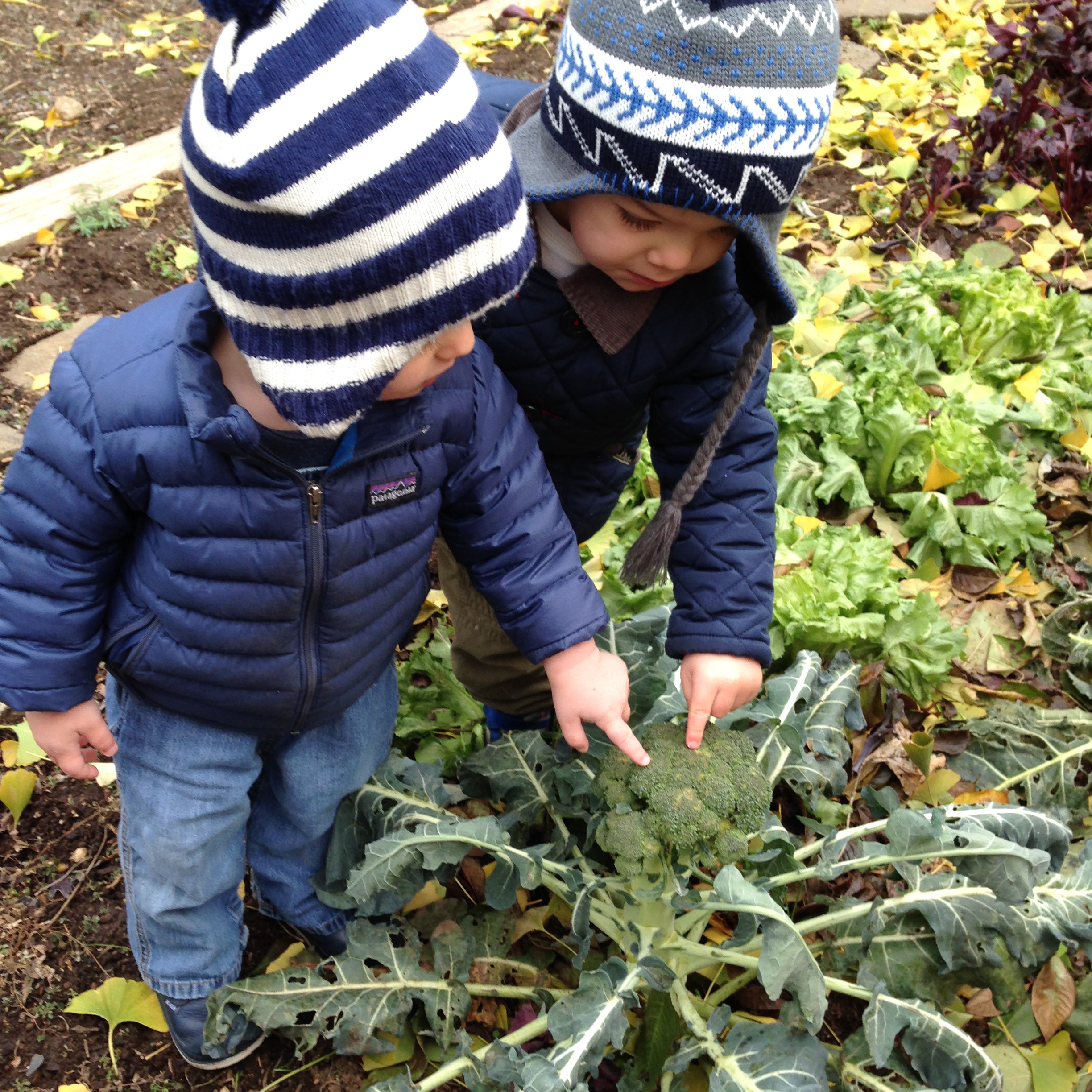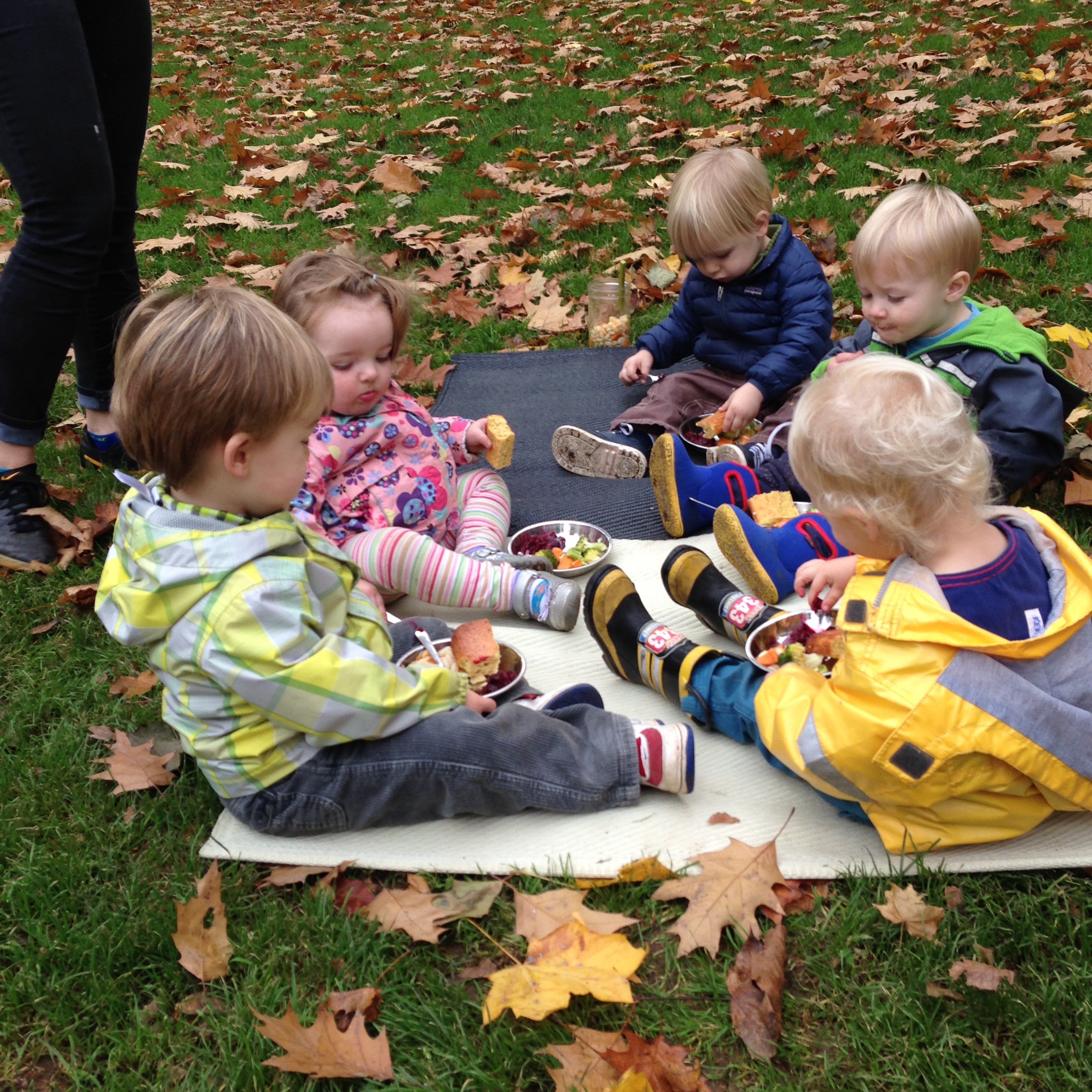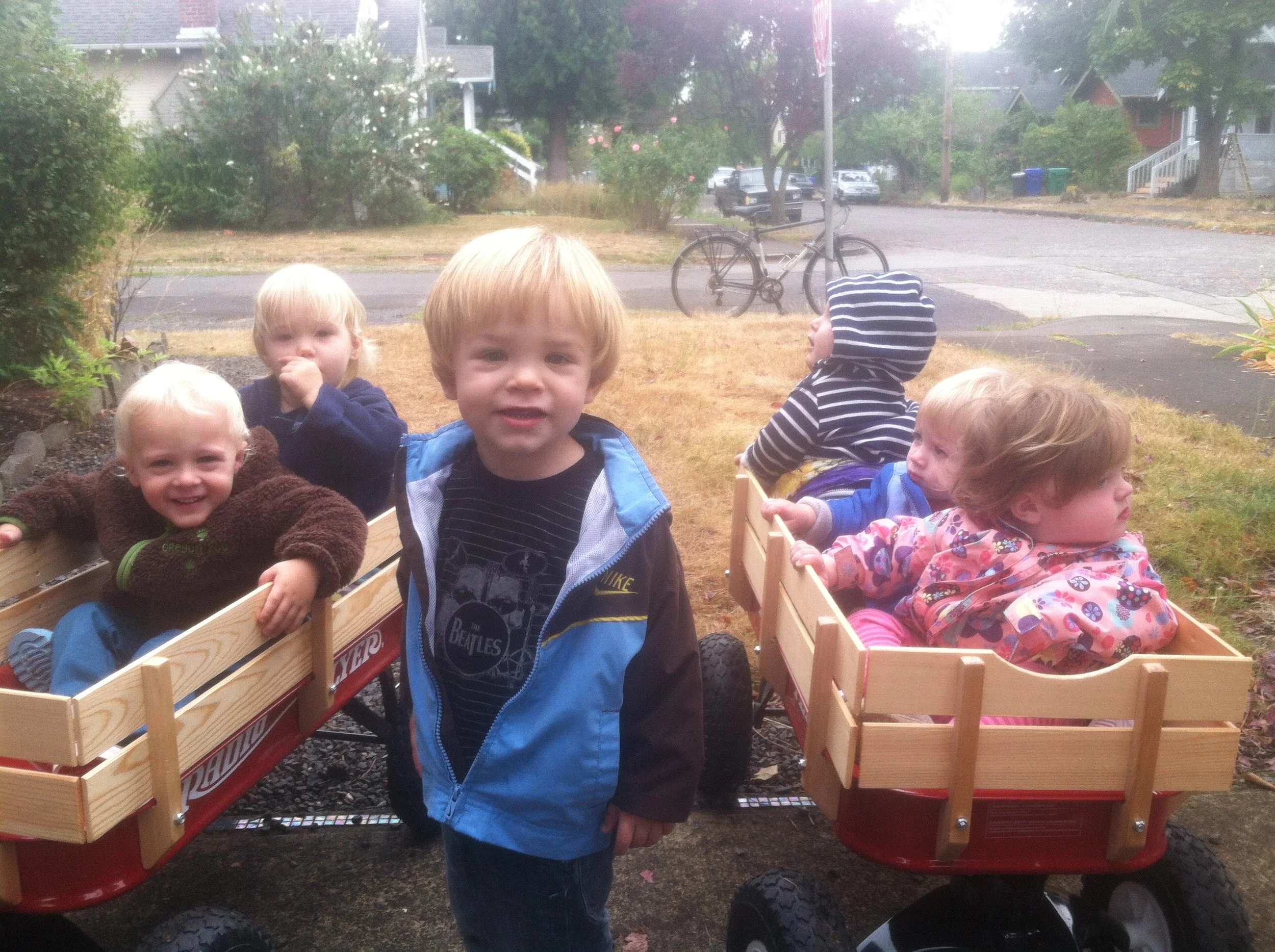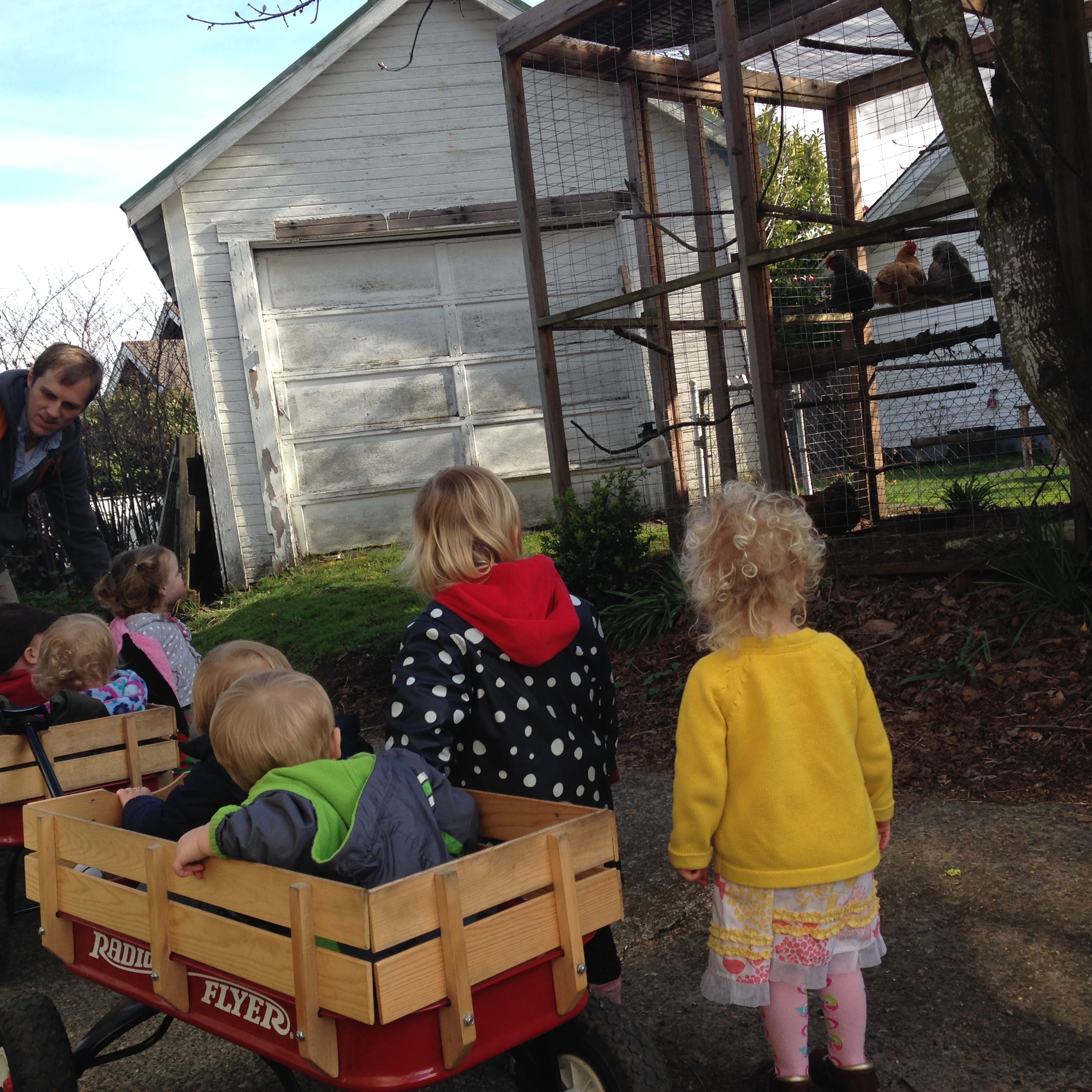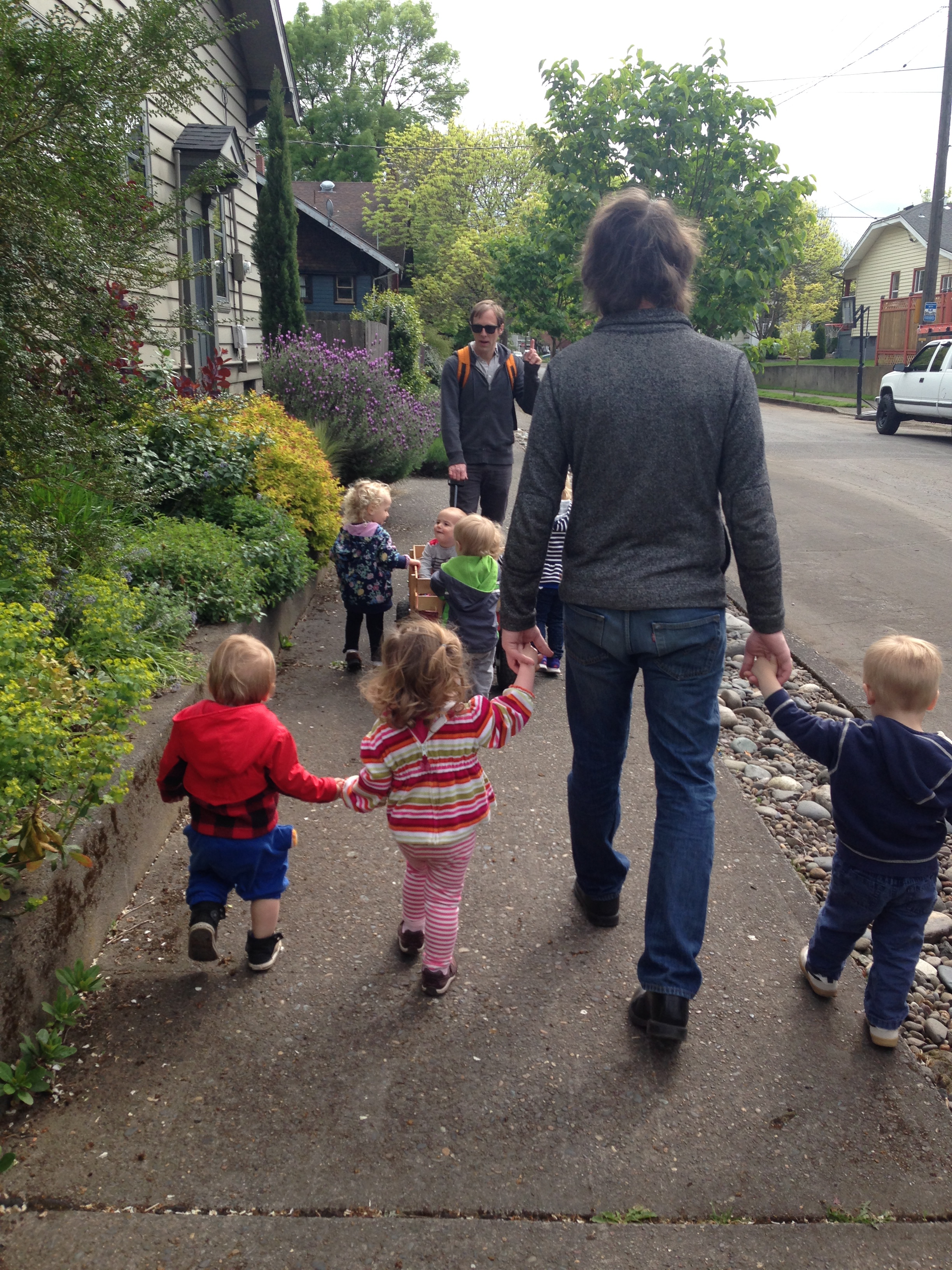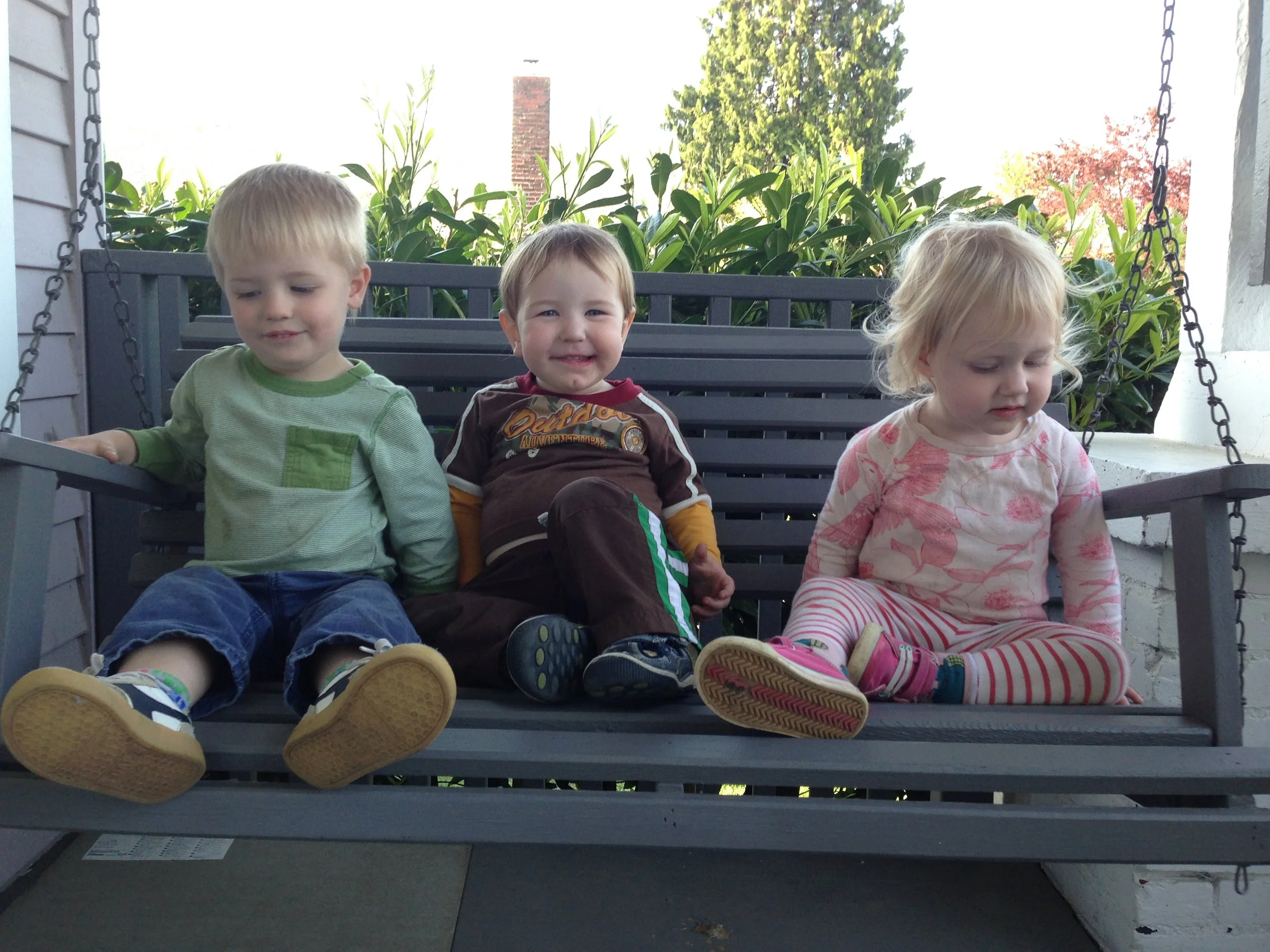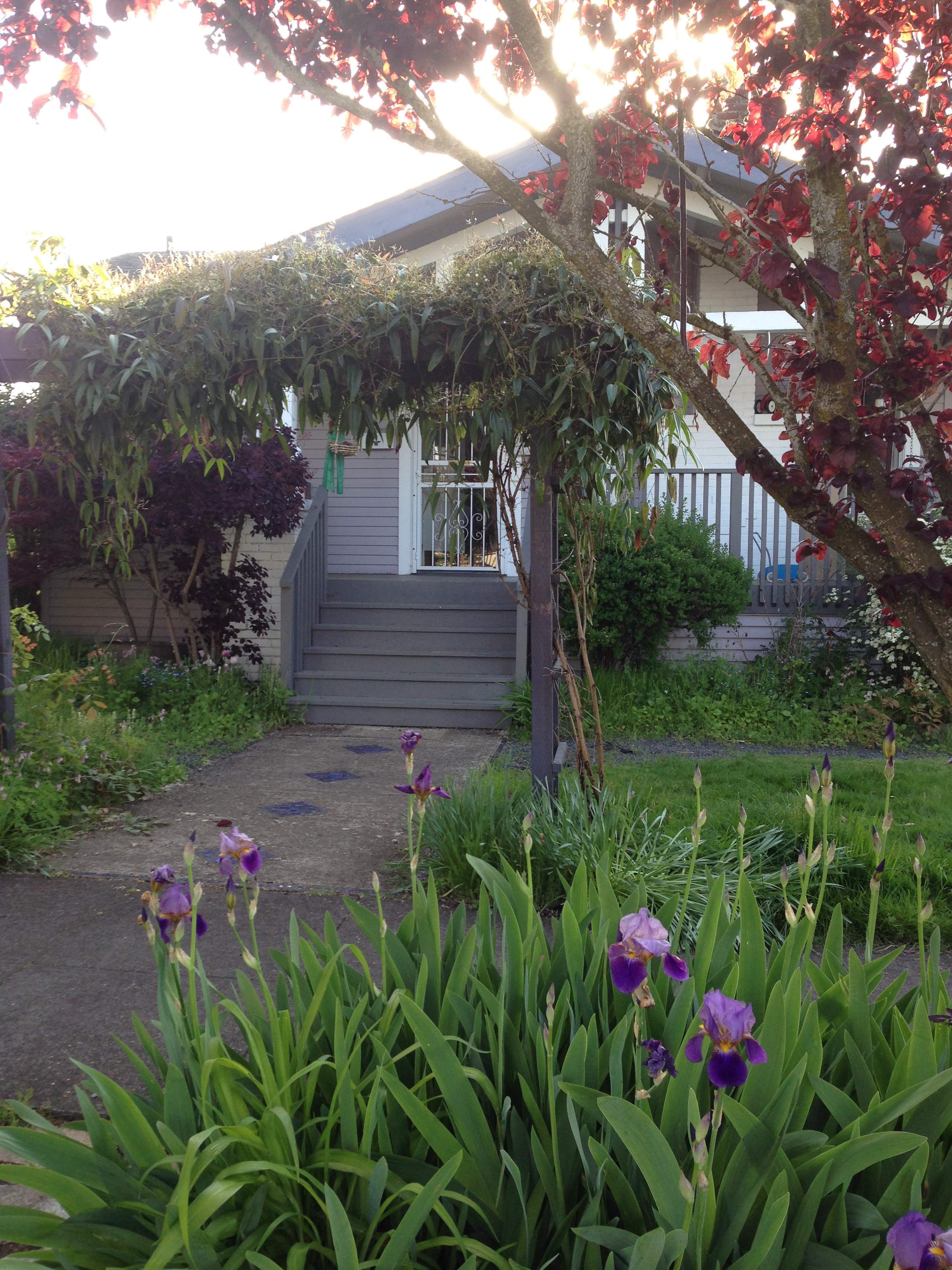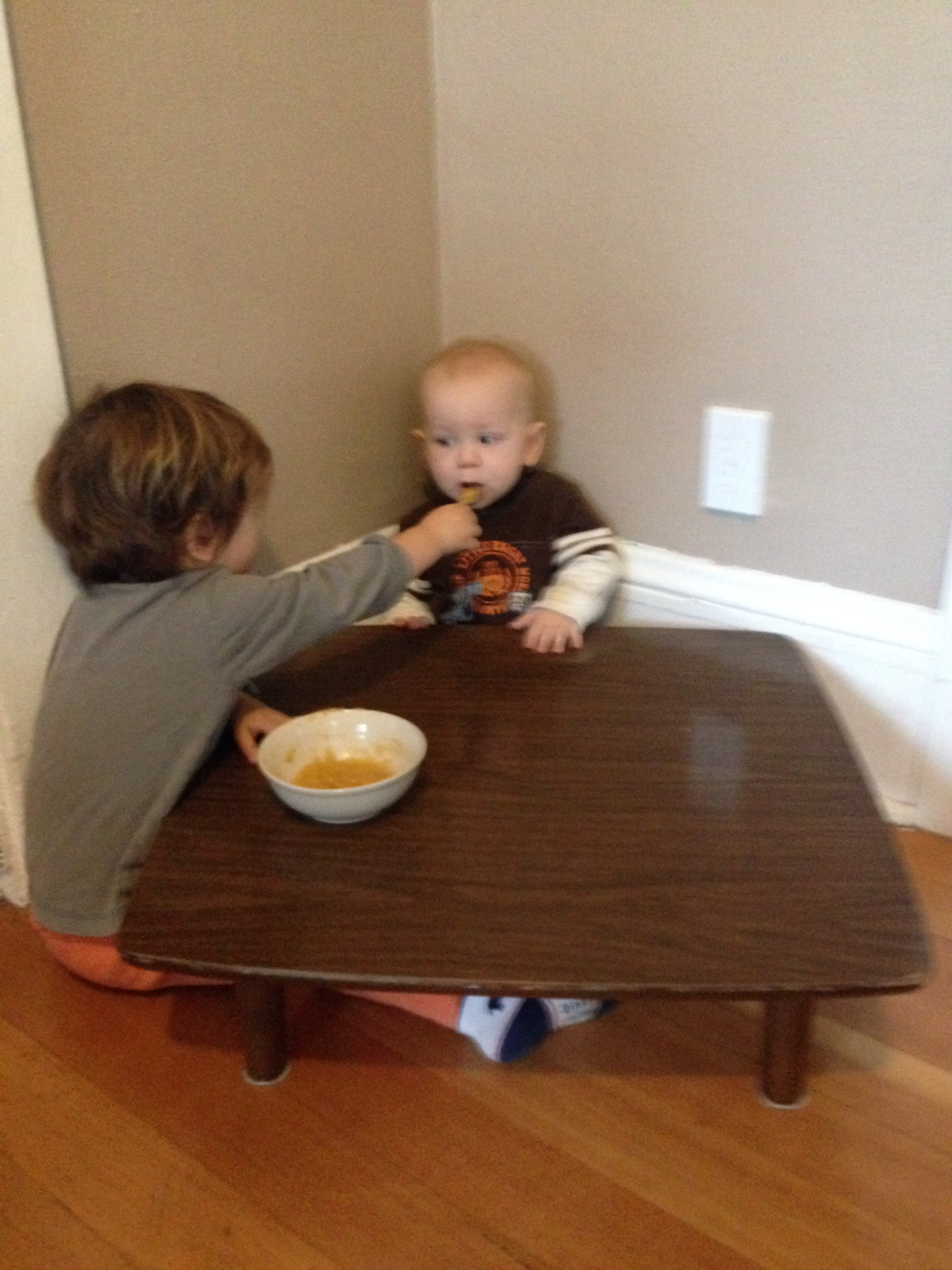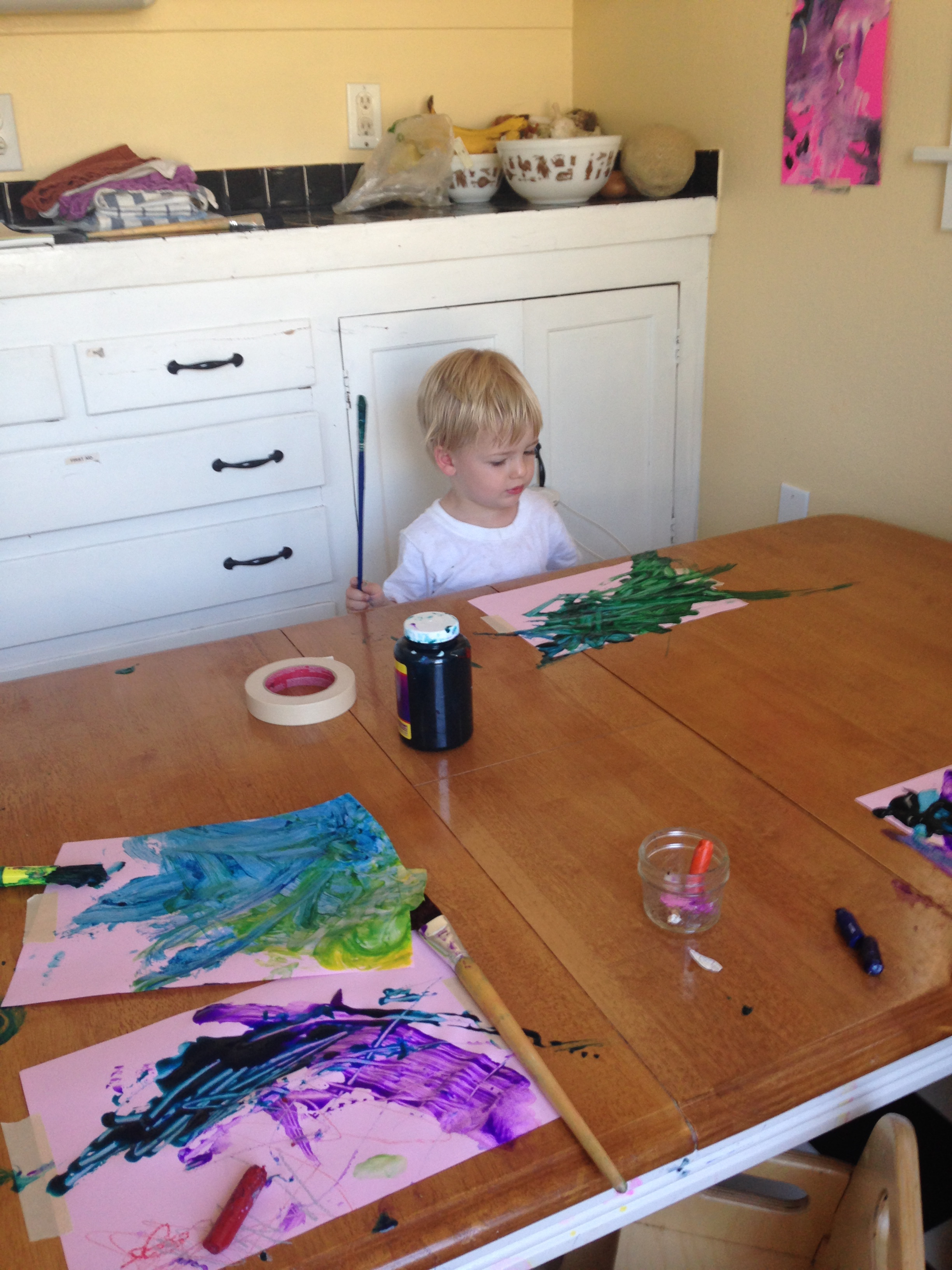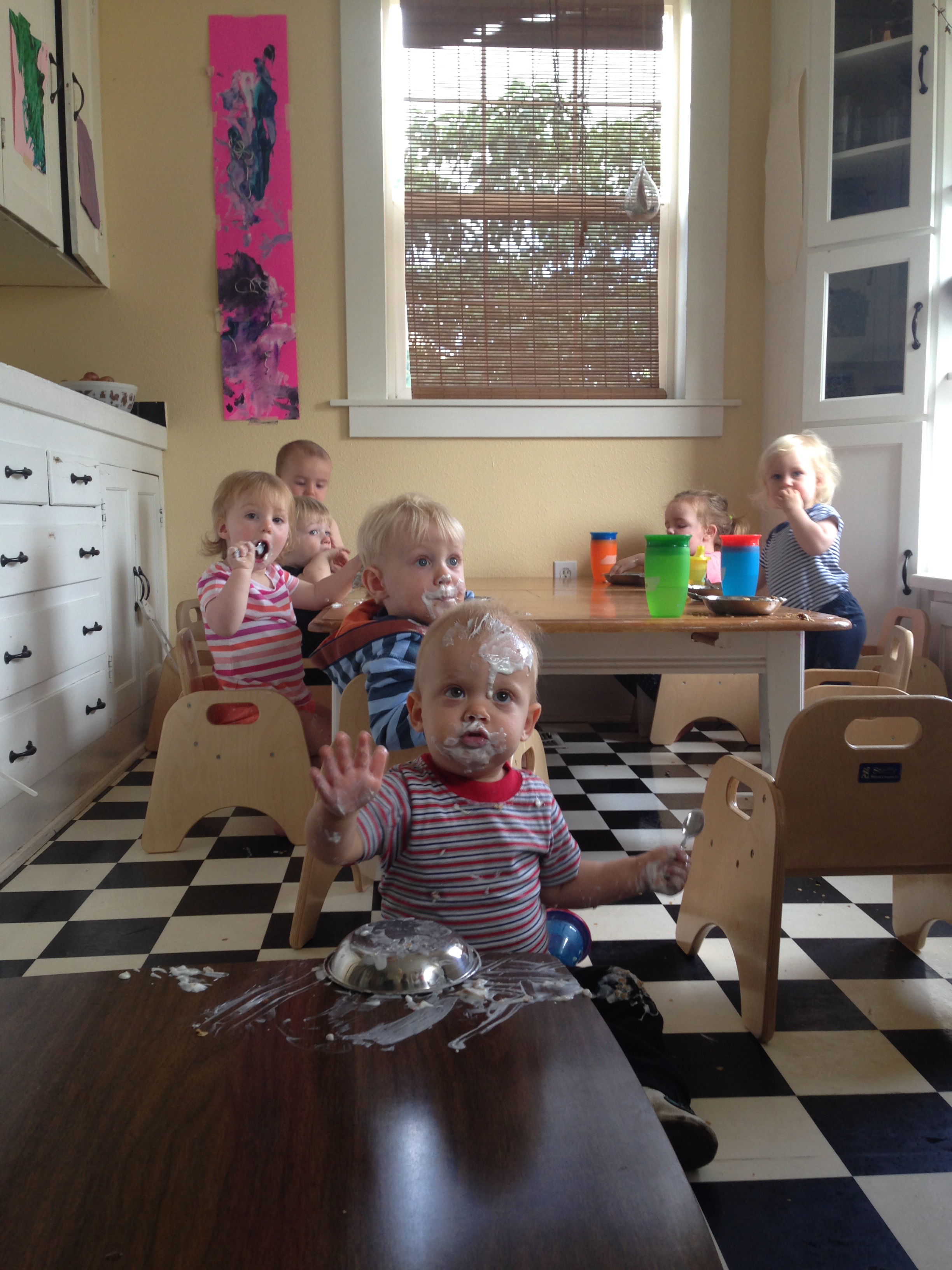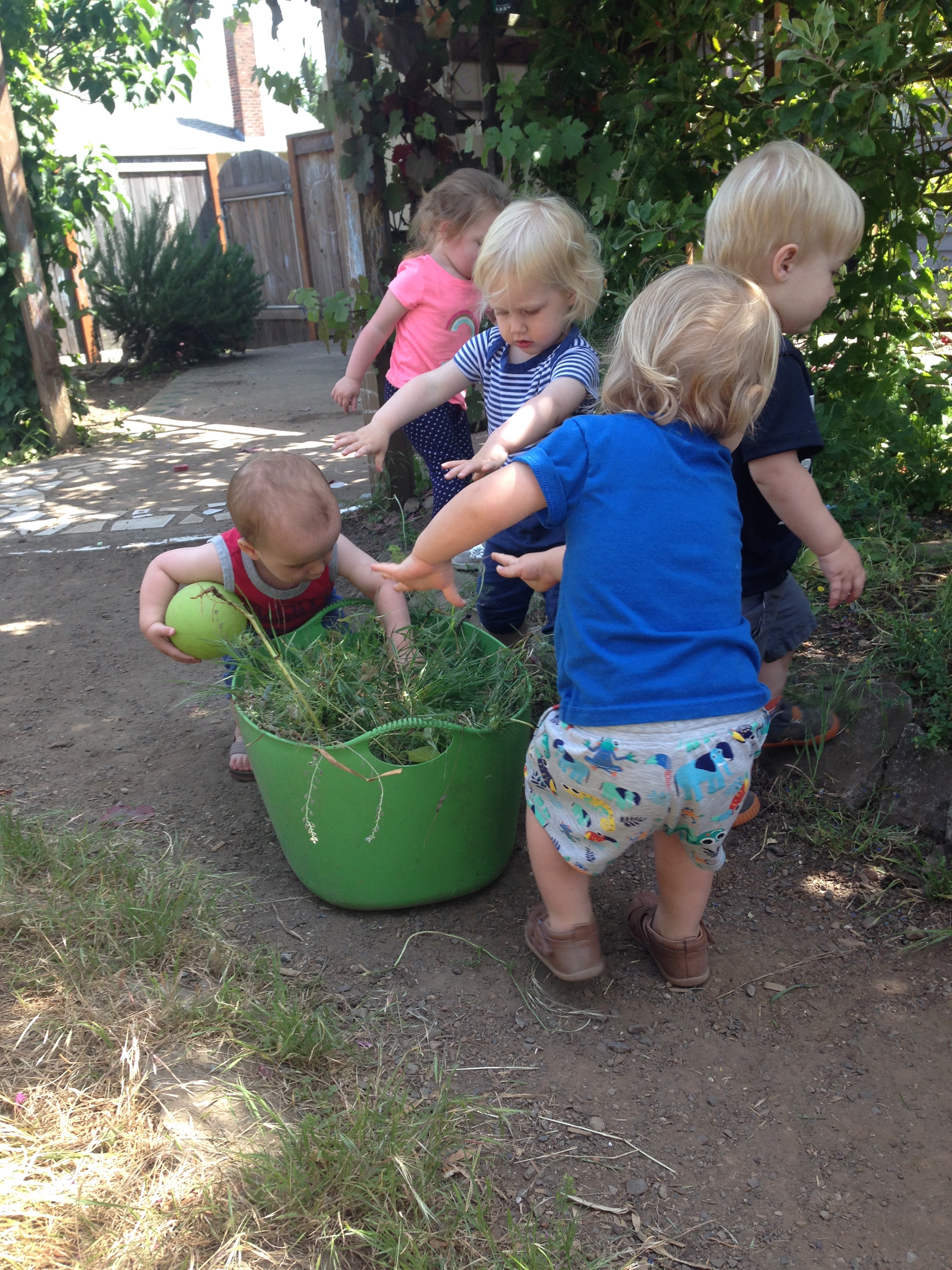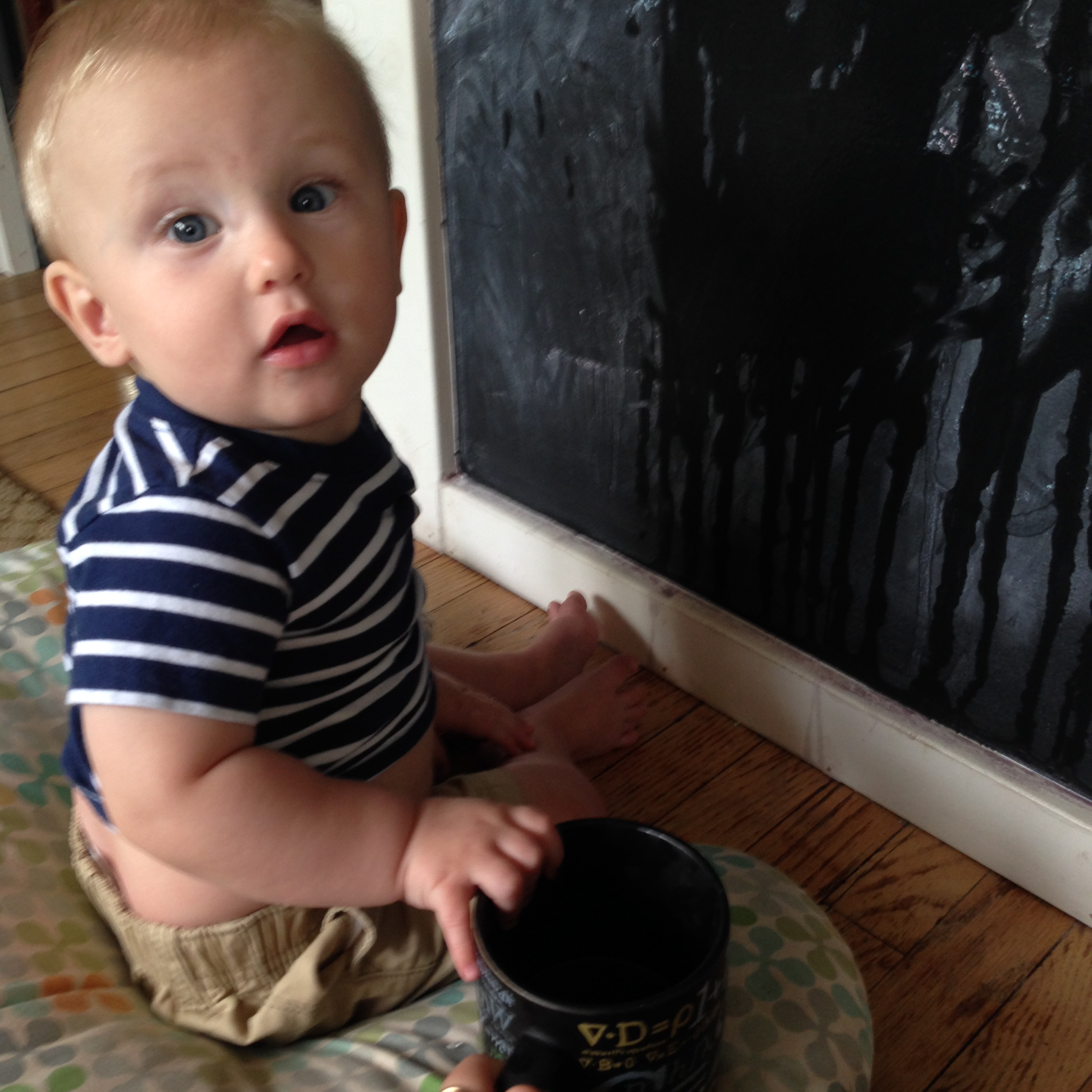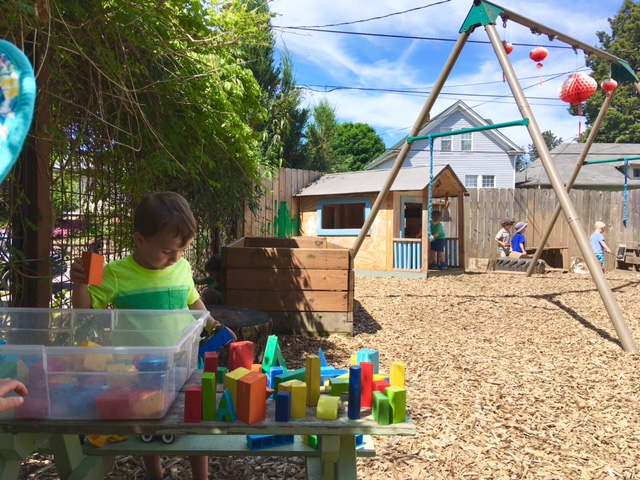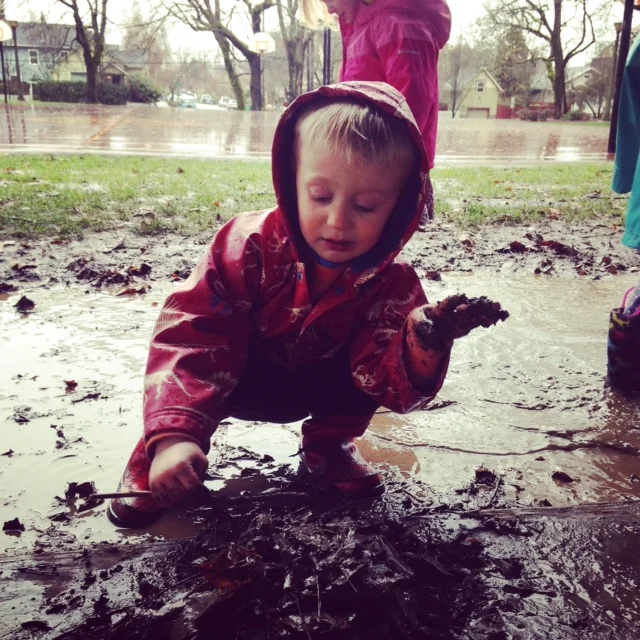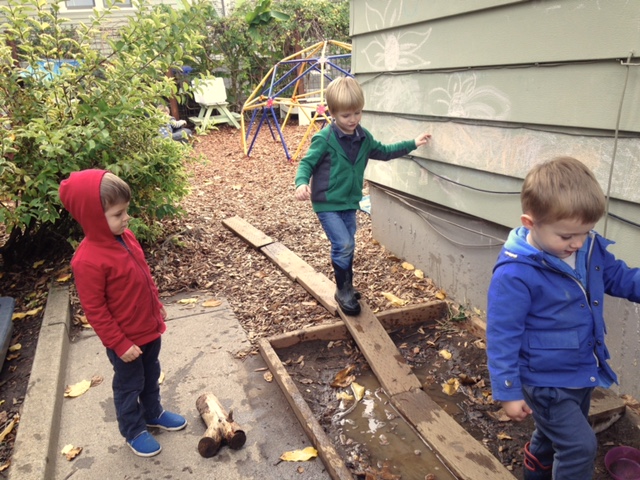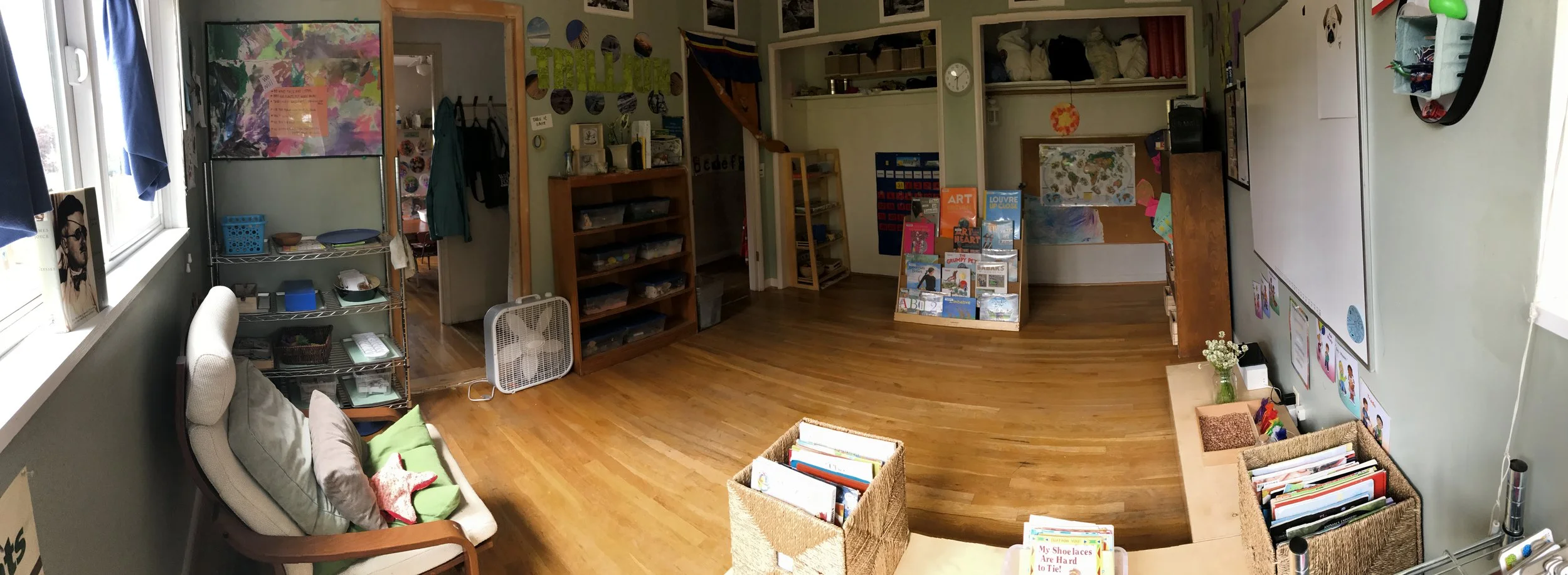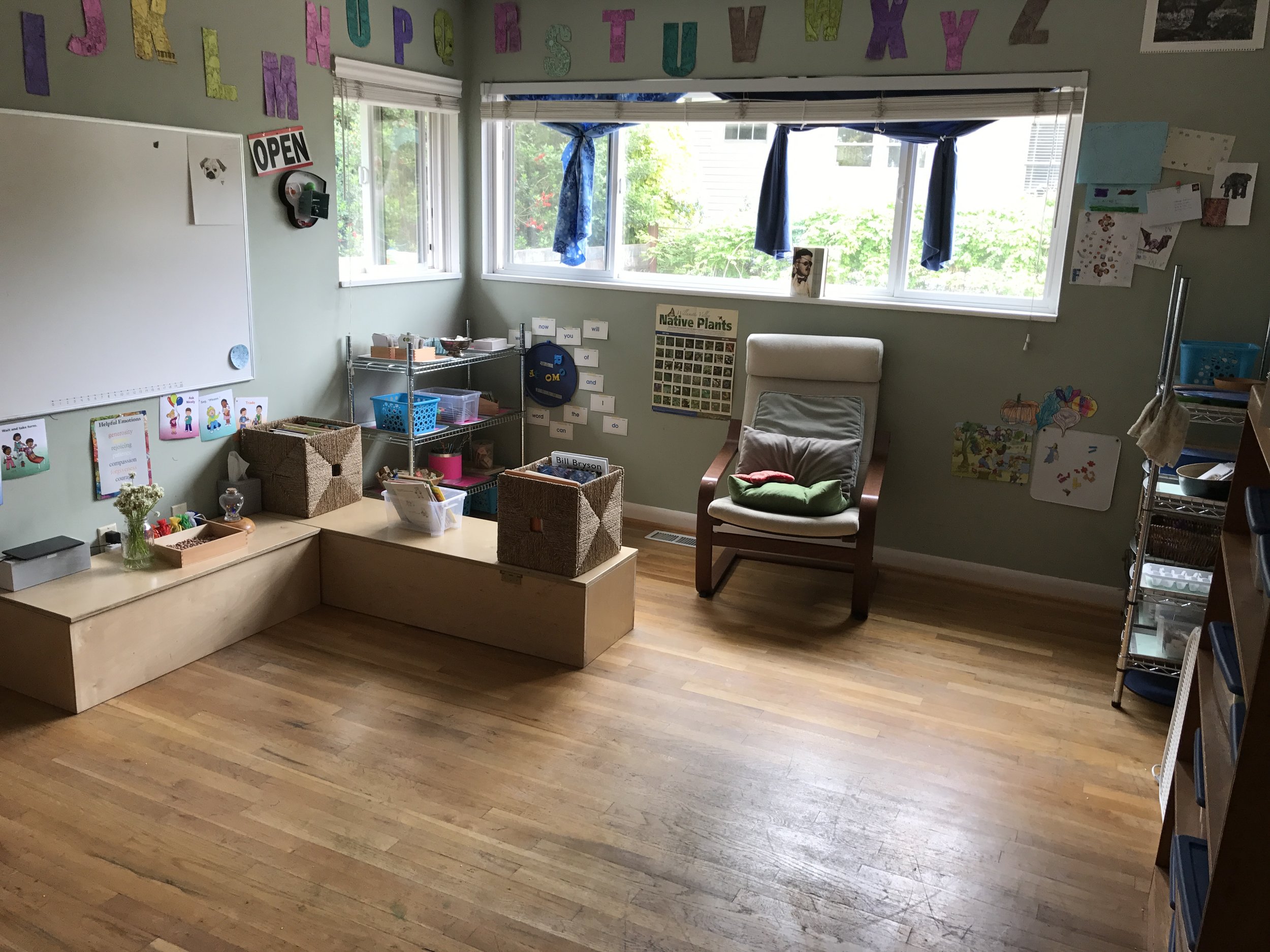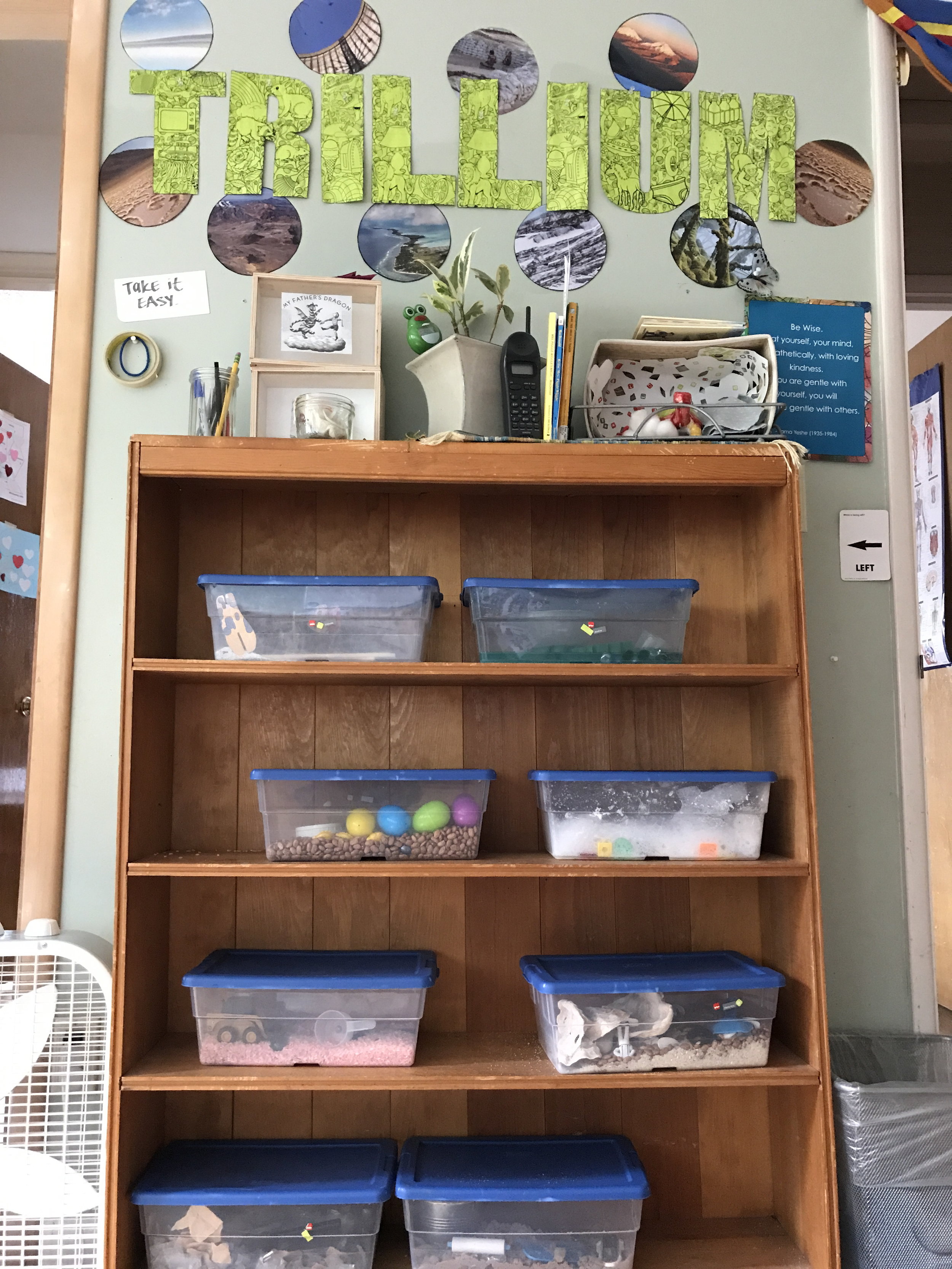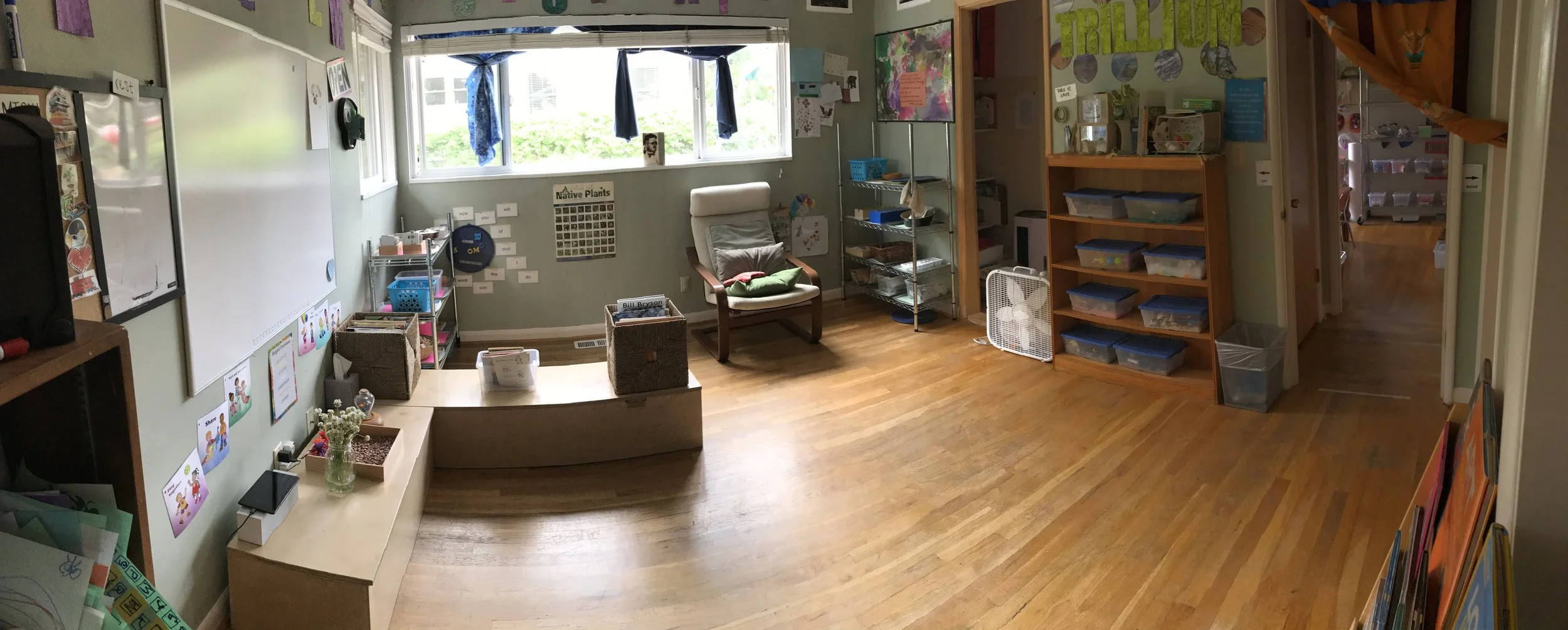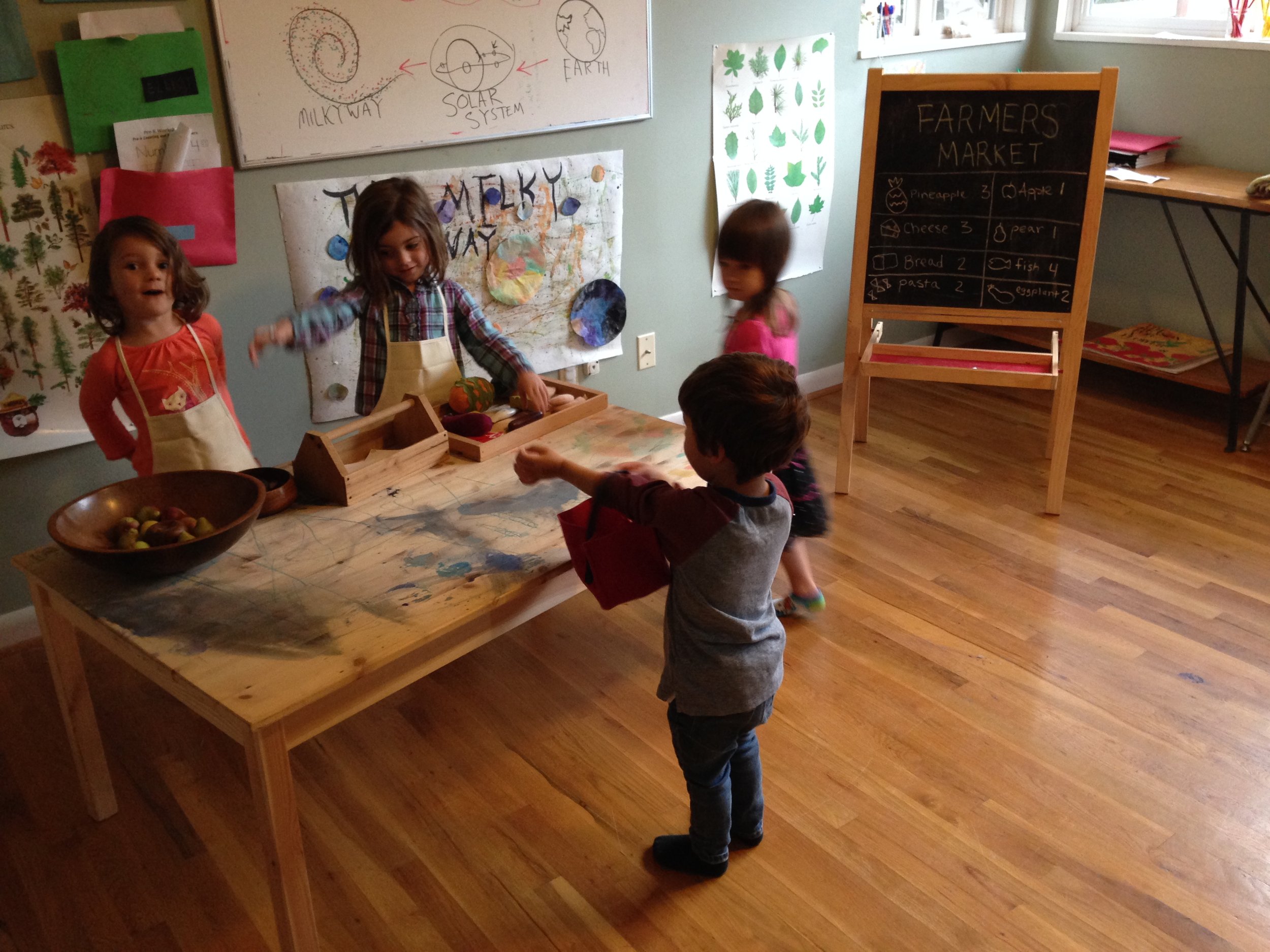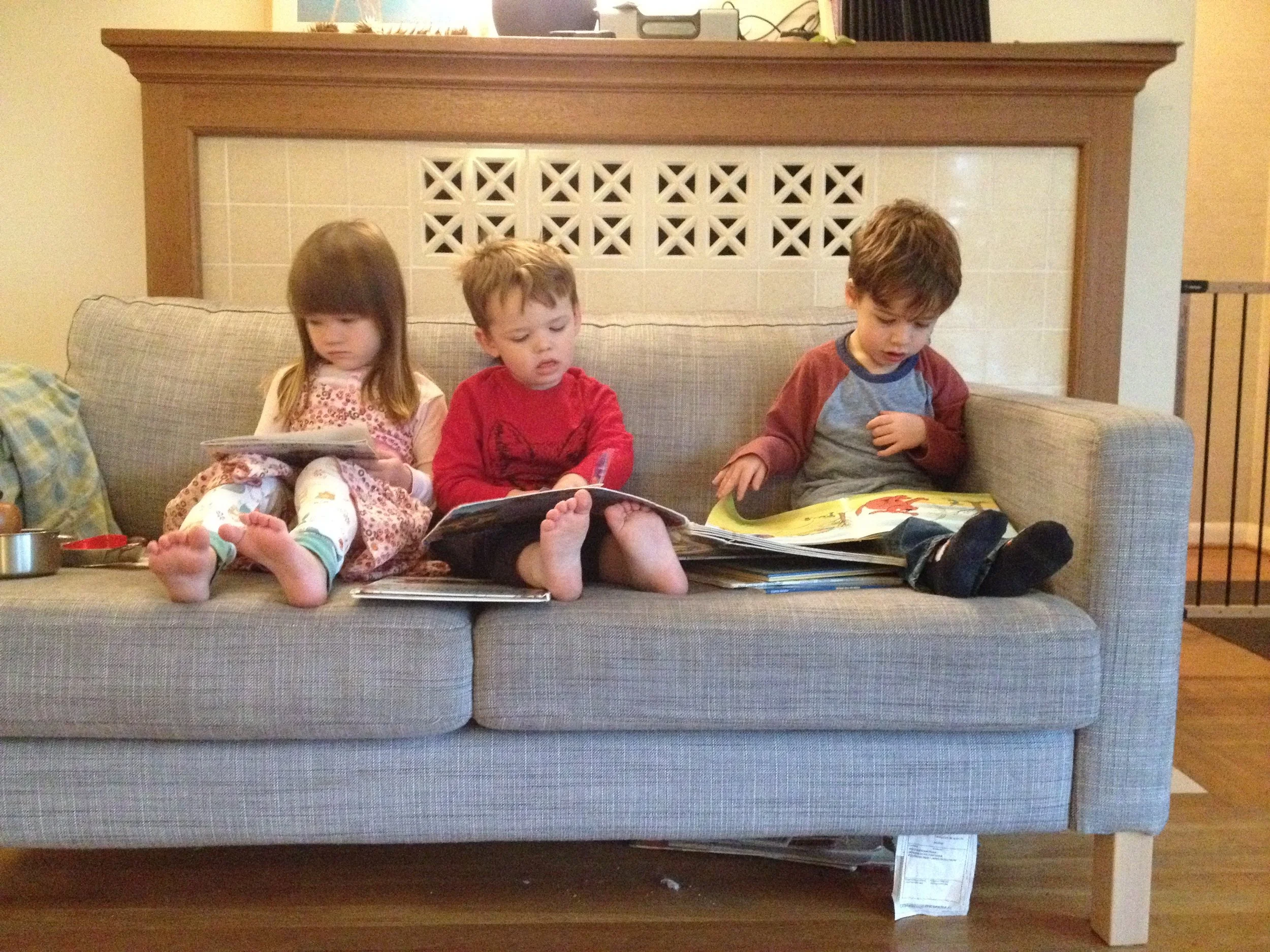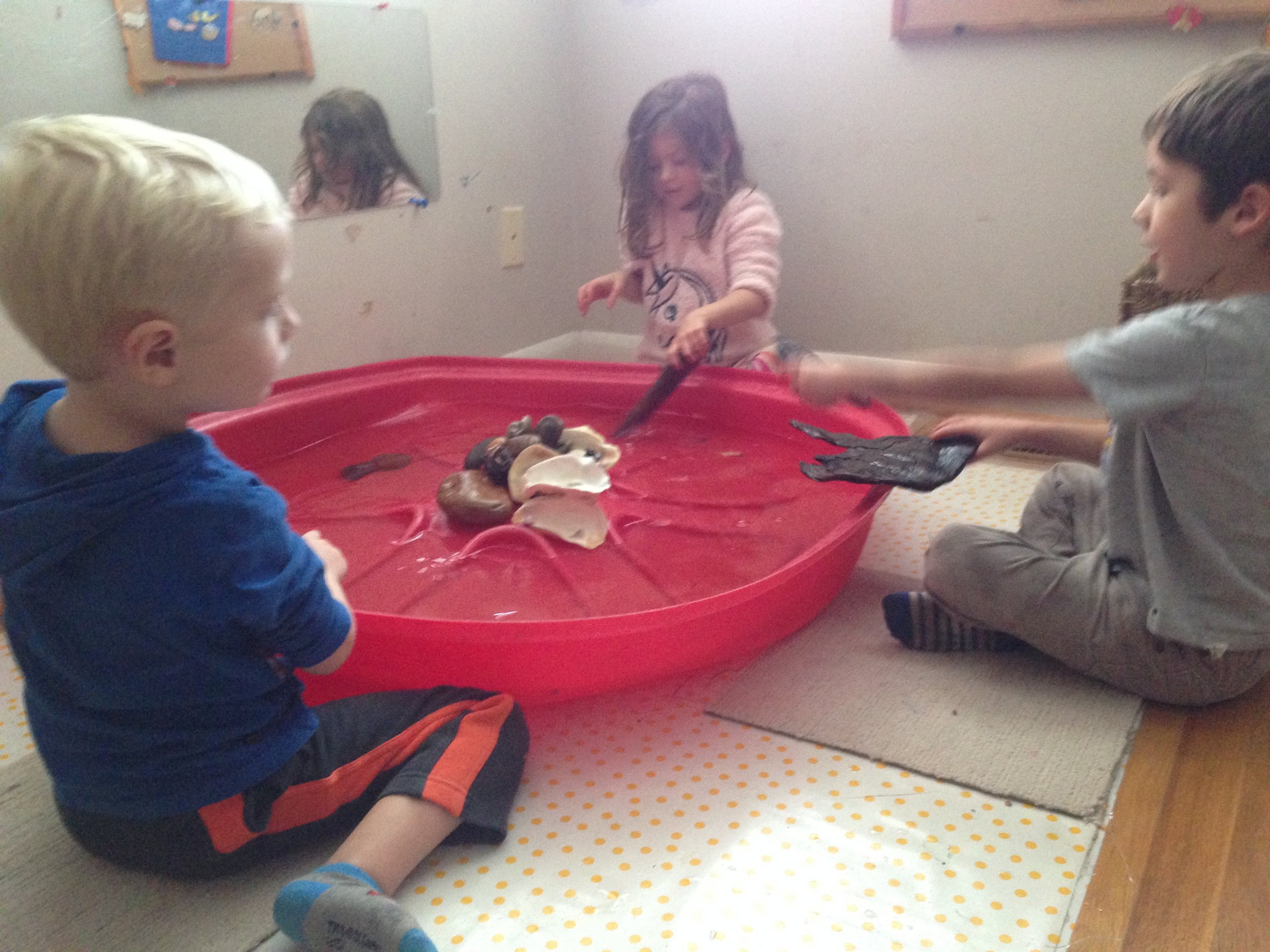CURRICULUM & DAILY ACTIVITIES
We believe in the child as an individual, and present information to children in a variety of ways, helping the children to grow in their own unique way. We make this possible by providing each child with the attention needed to thrive and foster their own love for learning.
Our teachers work with children in all of the following areas:
Social & Emotional Development
Physical Development & Health
Communication, Language, & Literacy
Cognitive Development
Creative Arts
Our primary focus throughout the day is offering stimulating and enriching activities balanced with opportunities for rest, and nourishing food. Within these daily routines, we find opportunities for learning about important life lessons, such as self-care and communication. Beyond these everyday learning moments, we also offer a more structured lesson time as the children grow older.
Both houses build a curriculum based on an interdisciplinary theme each month. We design age-appropriate activities centered on the theme so all children can participate. For example, each September we use the theme Farmer’s Market. Within this theme, we select age-appropriate activities for each classroom: reading library books related to the farmers market, engaging in conversations about food supplies and growing cycles, imaginative play with a farm stand (counting and pricing), working in the garden- feeling the dirt, fruit and vegetable identification, counting and color recognition, and enjoying each other’s company at a Portland Farmer’s Market for our monthly meet-up.
Based on children’s age and interests within the theme, we design a curriculum of daily activities. In addition to the changing monthly curriculum, we also offer plenty of time for free play and learning opportunities outside the theme.
ROSE HOUSE
The Rose House offers curriculum-based care for infants, wobblers, and toddlers.
The children at the Rose House spend their days in a space specifically designed with their needs in mind. Children have lots of room to explore their safe and stimulating environment. We provide activities that allow for gross motor development through a natural environment with an emphasis on offering toys that are natural objects or toys that are naturally made (i.e. wood blocks, fabric, pinecones) and avoid battery-operated toys. We've created a space free of furniture or contraptions that children need assistance with. (i.e. swings, high chairs, cribs, etc.) This is based on the RIE philosophy and in our experience best supports gross motor development and independence.
Infants
Young infant’s schedules are designed around their daily needs. There is one teacher tending to our infant cohort throughout the day, with assistance from 2 wobbler/toddler teachers, as needed. We ensure the babies in our care are given the food, sleep, diapers, stimulation, and nurturing that they need. Our small staff of experienced teachers are trained to prepare breast milk, formula, and first foods. Children at school sleep on a cozy mat on the floor, typically swaddled until they are ready to sleep on their stomachs. In following with the RIE philosophy, we allow children to move about freely and find what interests them in their space with as little interference from teachers as possible. Within the Rose House layout, we offer a quiet separate room for infants to play and rest. When possible, we mix ages of all the children at school and encourage peer care-taking. Often at morning drop-off time and afternoon pick-up time we are together as a group in either the large classroom or outside. With each child, we work to understand their rhythms and routines and learn to follow their cues.
Wobblers and Toddlers
Around the time children reach their first birthday, they transition into our Wobbler/Toddler classroom. In this program, children have a more structured schedule. Typically these children have one mid-day nap and 3 set snack times. The rest of the day allows for a range of daily activities including free play, reading books, art projects, garden time, neighborhood walks, and sensory exploration
OAK HOUSE
The Oak House is a space for children ages 3-5 years old. We spend part of our time as a mixed age group and separate into an older group (Trillium Class) and younger group (Loon Class) for our lesson, lunch and naptime. Our space is designed to provide children the opportunity to explore and expand their knowledge with support from teachers by providing tools for imaginative, independent, and group play. We believe in the importance of play to support children in their personal growth as well as providing an opportunity to work with peers and resolve conflicts. Children at this age need time for both structured and unstructured activities, and we have built our curriculum and schedule to accommodate a variety of learning styles. We work to provide an opportunity for all of the following in our daily activities: free play, group activities, outdoor time at school as well as at the park, lessons through movement, quiet space, music, nutritious meals, storytelling, art and rest.
Loon Classroom
Our younger preschoolers are ages generally 3-4. We believe that the most important skills at this age are:
Building self care routines (putting on/taking off clothes, washing hands, cleaning up after our work)
Social skills (learning to communicate wants and needs, resolving conflicts, cooperation, practicing empathy)
Emotional awareness (learning to properly label and express emotions in helpful ways, finding coping methods such as breathing, art, and finding a quiet space)
Building self esteem (discovering our likes/dislikes, successes and mastery of skills, providing opportunities for creativity)
Increasing ability to self regulate (practicing patience, impulse control, and sitting politely at snack and story times)
We work with the children on these skills primarily through play-based learning. Allowing the children the opportunity to choose activities that interest them, building on their confidence and social skills, while also coming together to do group art projects and lessons that expose children to new experiences and ideas. We incorporate our curriculum primarily through storytelling, songs, movement and art.
Trillium Classroom
Our Trillium Class is primarily our Pre-K class, built for children in their final year of preschool before entering kindergarten. At this age children often have the ability to tend to personal needs with minimal help, have greater self regulation, are able to focus for longer periods of time and are starting to have the ability to resolve conflicts with peers independently. Because kindergarten transition age must be met by September 1st each year, there are times that children may move over to The Trillium Classroom prior to their Pre-K year, this decision is made based on classroom size and on what we feel will benefit the child the most as an individual.
We continue to allow for play based learning in this classroom, and expand to a greater focus on academics through hands on learning and lesson times. Our lessons include movement, songs and art, and children are encouraged to challenge themselves in their ability to master skills, cooperate and problem solve together. In this classroom, there is a strong focus on community and environment. The children are all considered a valued member of the classroom, having responsibilities and opportunity to contribute to the classroom through their ideas and work. We follow the Oregon Department of Education Standards to ensure students are well prepared for kindergarten, and provide opportunity to push far beyond these standards if they so choose, but our greater focus is ensuring that the children are engaged and inspired by the lessons and resources provided in order to foster a greater love for learning.
Pre-Kindergarten Curriculum
We follow the Oregon Department of Education standards to ensure that our students are prepared for kindergarten. The curriculum for preschoolers in their pre-k year will focus on developing the following areas assessed for early kindergarteners:
Early Literacy:
letter names: sees and names upper and lower case letters
letter sounds: student sees and names letter sounds and some letter blends
Early Mathematics:
counting, simple addition, simple subtraction, and recognizing number patterns
Social and Emotional Intelligence
problem solving and conflict resolution skills
Self-Regulation:
ability to follow instruction
